Our spotlight (FRESH)man Voices this week is Anjeliah Chiodo. I had the wonderful opportunity to write a story about her. She is an iconic Instagram influencer with 25.1k followers.
 This first-generation college student let us have the amazing chance to get some insight on herself, her lifestyle and her opinions on some topics. Her major is Entrepreneurship. An entrepreneur is person who organizes and operates a business or businesses, taking on greater than normal financial risks in order to do so. So cool, what a great goal!
This first-generation college student let us have the amazing chance to get some insight on herself, her lifestyle and her opinions on some topics. Her major is Entrepreneurship. An entrepreneur is person who organizes and operates a business or businesses, taking on greater than normal financial risks in order to do so. So cool, what a great goal!
Her hometown is Pine Hill, NJ (Camden County) … which is not too far from Glassboro! Anjeliah is also 18 years old.
She chose to live on campus. She lived in Evergreen Hall before they shut the campus down due to coronavirus.
 Sometimes freshmen have a hard time transitioning into college, but not Anjeliah! She went through a six-week program in the summer before starting her first fall semester called the Pre-College Institute (PCI), a program to help students financially and academically. In this program, a student can be considered an EOF student or a RISE student, and she was considered a RISE student. She stated how this program gave her a lot of structure, it taught her how to prioritize, manage her time with a full schedule (with classes, study sessions, meals, meetings, extra activities), how to become organized, and also helped her get used to the campus life. She also met a lot of people — people who she is still friends with to this day and also very important people that helped build her network … how awesome? During these six weeks, they took everyone’s phones, which many students were mad about, but she didn’t mind at all because it forced her to talk to other people (which built genuine relationships without the social media). This brought her out of her shell, and helped her look elsewhere for fun activities rather than social media!
Sometimes freshmen have a hard time transitioning into college, but not Anjeliah! She went through a six-week program in the summer before starting her first fall semester called the Pre-College Institute (PCI), a program to help students financially and academically. In this program, a student can be considered an EOF student or a RISE student, and she was considered a RISE student. She stated how this program gave her a lot of structure, it taught her how to prioritize, manage her time with a full schedule (with classes, study sessions, meals, meetings, extra activities), how to become organized, and also helped her get used to the campus life. She also met a lot of people — people who she is still friends with to this day and also very important people that helped build her network … how awesome? During these six weeks, they took everyone’s phones, which many students were mad about, but she didn’t mind at all because it forced her to talk to other people (which built genuine relationships without the social media). This brought her out of her shell, and helped her look elsewhere for fun activities rather than social media!
Anjeliah’s goal is to be a successful serial entrepreneur, she wants to own several different businesses, like a coffee shop, tattoo shop, nail salon, restaurant, and most importantly a retail store (clothing brand), while also modeling for her very own clothing brand. She has decided to take a step forward, start small by taking baby steps, and start her own lip gloss line, called Anjel Allure, (right now it is under construction). So please, stay tuned!!! I’d love to try it myself. For her short term goals, right now she is working as a bank teller at TD Bank, and she also hope to get promoted as much as possible before she started her own future business.
Anjeliah has many hobbies such as shopping, having photoshoots, exercising/lifting, eating, taking pictures to post on Instagram/promoting brands as an ambassador, making lip gloss, coming up with creative ideas for a future business, drawing self portraits with charcoal and chalk, playing the piano, saxophone, and clarinet, working on hair/skin care, playing tennis. Talk about well rounded!!! A successful student, and someone who loves her hobbies. 
Rowan was always her third choice when picking where to go for college, but it turned out to be the best decision she’s ever made because of the great people that she’s met, the opportunities she has come across, and the events that she has got involved in that exposed me to a lot of publicity. The reason she came to Rowan was because they offered her more money than the other universities, especially when she became a RISE student. At first, she was told that she was not eligible to be an EOF student (when grants are given to low-income students, and their grades are high enough, so they can attend school), she realized that because of that, she won’t be able to afford to go to Rowan…and she felt lost, like the only other option she had was community college. However, ONE very important person at Rowan went above and beyond to help her become a RISE student (when a scholarship is given to students whose household income is too low, but too high to meet the requirements of an EOF student, and their grades are superior and exceptional). Therefore, she made it into the ASCEND program for the summer, and was able to afford to go to Rowan. This showed her how one person can make a great impact on her life, and it showed her how much they cared for her to do that. How wonderful!
She is also involved in the Beauty in Distress Club, CEO Club: Collegiate Entrepreneur Organization, Society for the Advancement of Management club, Student University Programmers, MOCA: Men of Color Alliance Organization, Keep the Code Organization (she is the Event Coordinator), Harley Flack Mentoring Program, and the Bronze Leadership Program. These clubs are definitely something for any one at Rowan looking to gain some more opportunities with campus.
I also wanted to ask Anjeliah about her opinions on this pandemic going on in the world right now. She honestly feels like people want to get sick because no one is staying home. Working at TD Bank, she is constantly being exposed to people all time, and it is not helping when people like to be out of their homes and endanger their health & safety and her own. She also believes that people should take advantage of this time of staying at home and pick up a hobby, eat healthy, exercise, start a new routine, read a book, etc. People can be doing anything else besides leaving their home. They do not realize that this virus spreads fast, and by being out, they are also threatening the health & safety of others. And for the people that are sick, she is sorry for their struggles and for their pain, and she hopes they are fighting with all of their strength to stay strong. As far as for the people who have lost loved ones due to COVID-19, she is very sorry for their loss and she cannot imagine what they are going through. And for the people that are still living healthy, she hopes they are appreciating that, she wishes for them to recognize that they are helping prevent the virus by staying home, and that we are all alone in this together. #alonetogether
Anjeliah, you are amazing! Keep up with your hard work and dedication to success. You have given us a story that holds leadership, dedication, talent and enterprise. For all you readers, check out Anjeliah’s Instagram and give her a follow.

Like what you see?
LEARN MORE
Story organized by:
Devon Graf, senior Communication Studies major
Photography and story contributed by: Anjeliah Chiodo


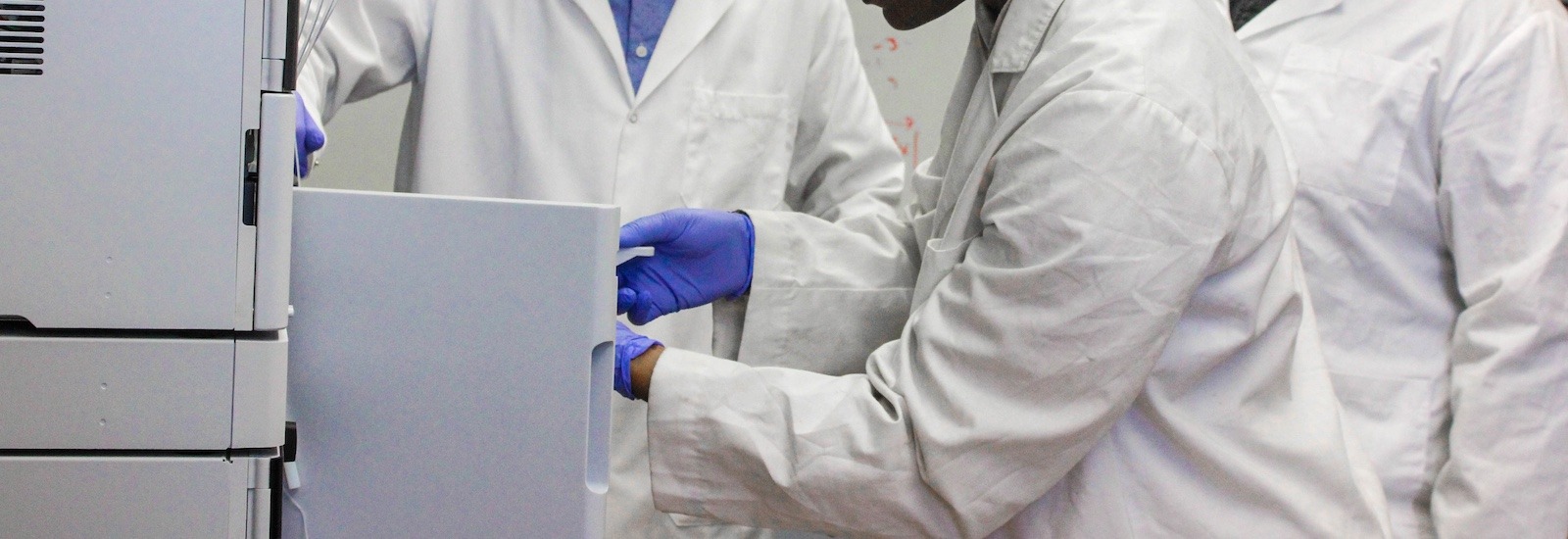

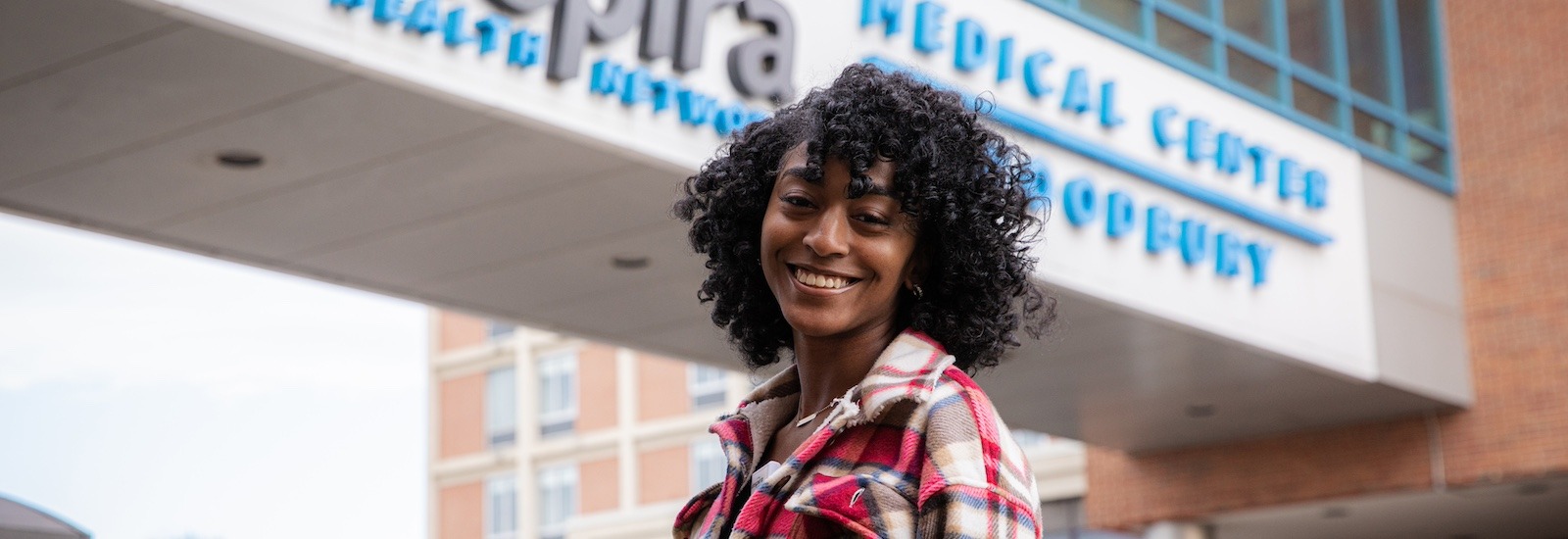
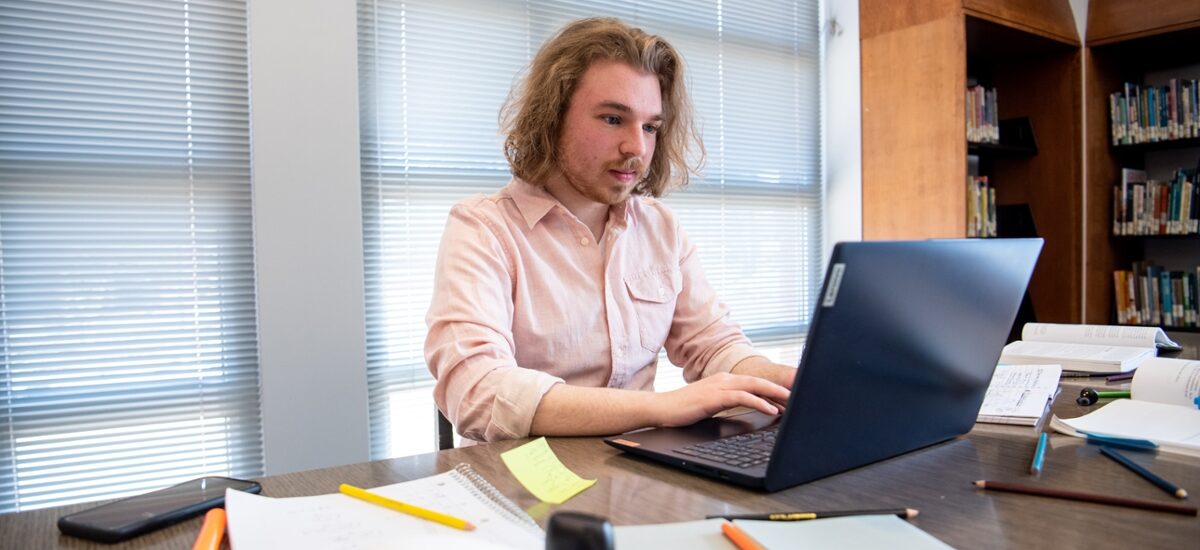

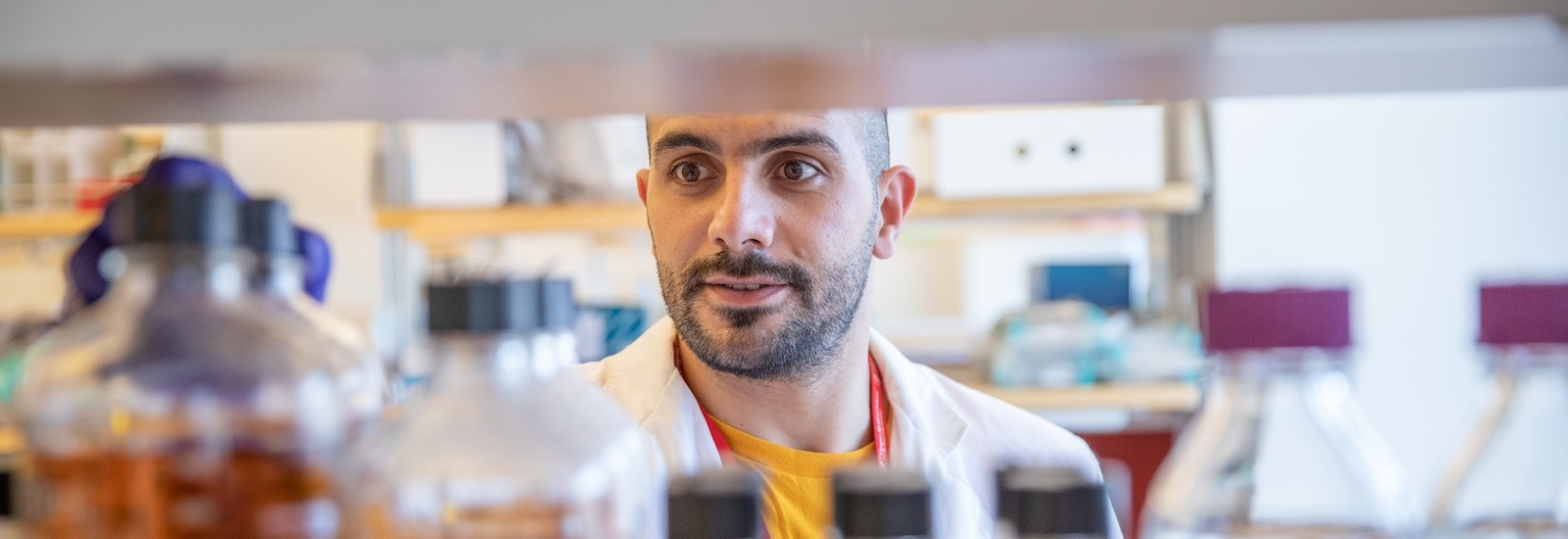






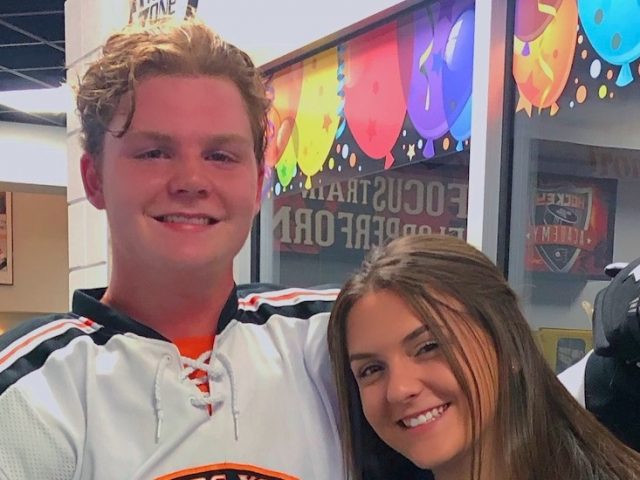


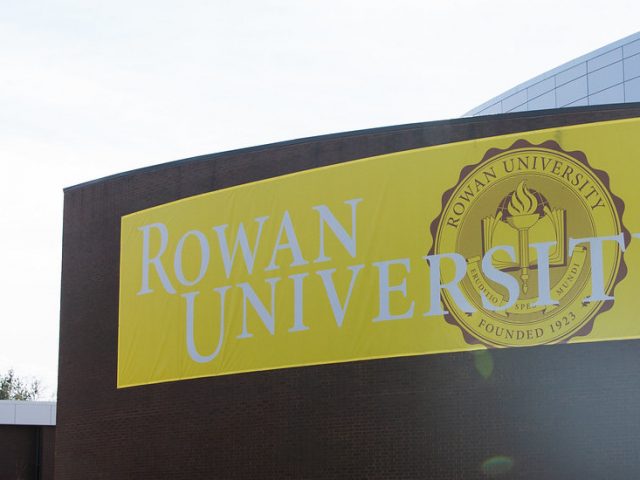








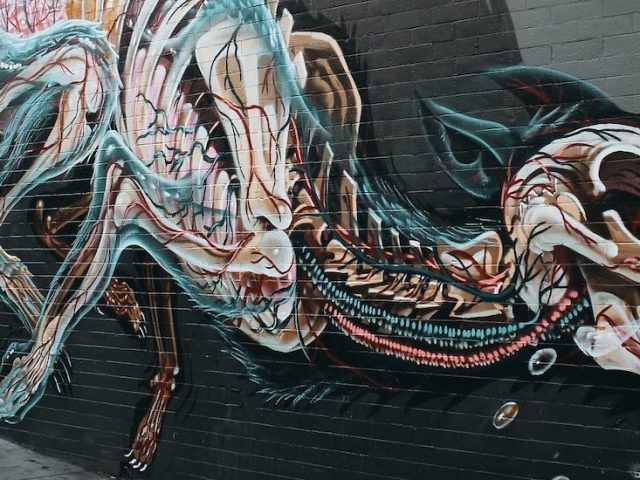


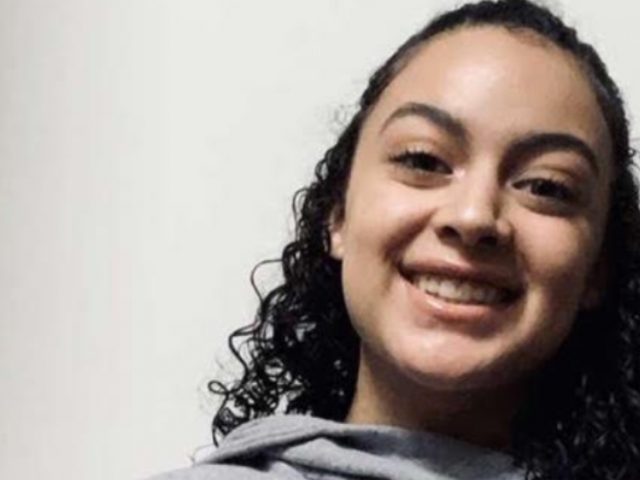

 Why did you choose a university that is close to home? I chose a university that was close to home because I didn’t want to move too far away from home but I wanted some kind of commute to make me more independent.
Why did you choose a university that is close to home? I chose a university that was close to home because I didn’t want to move too far away from home but I wanted some kind of commute to make me more independent.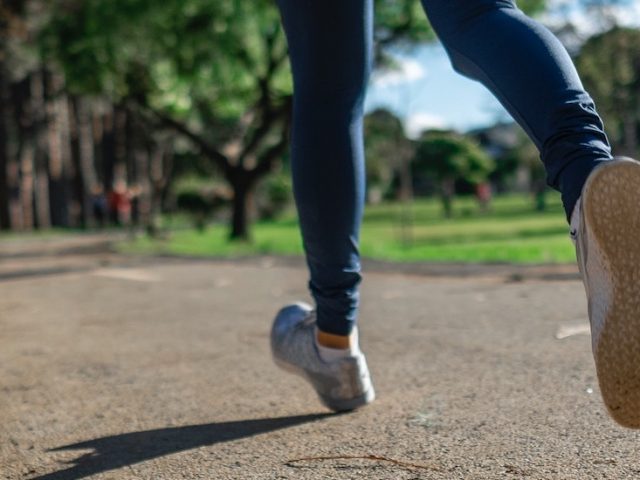




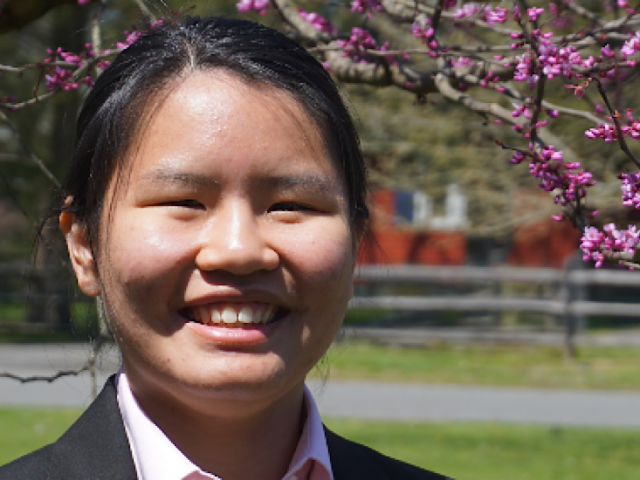

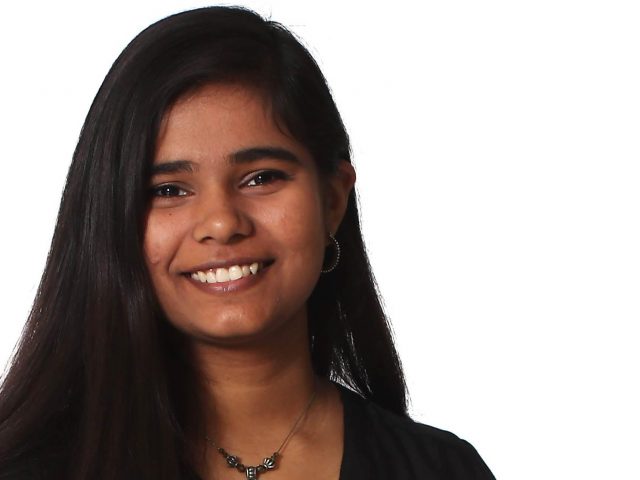

 What is one activity that you did in high school that you’d like to continue with at Rowan?
What is one activity that you did in high school that you’d like to continue with at Rowan?
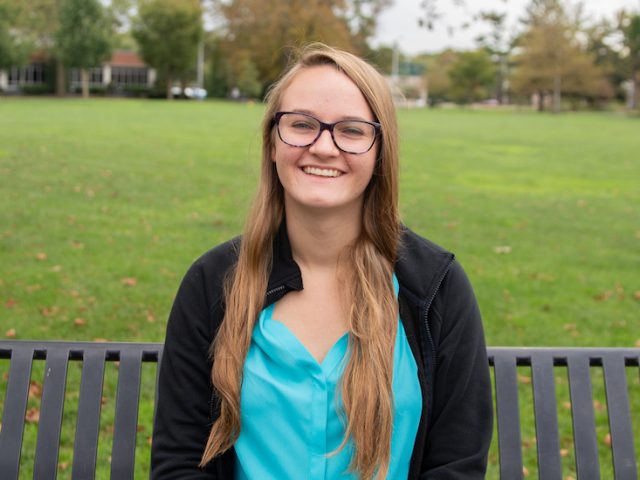
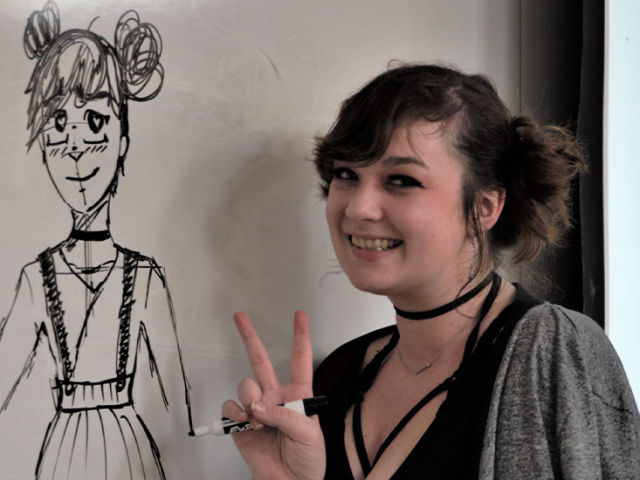
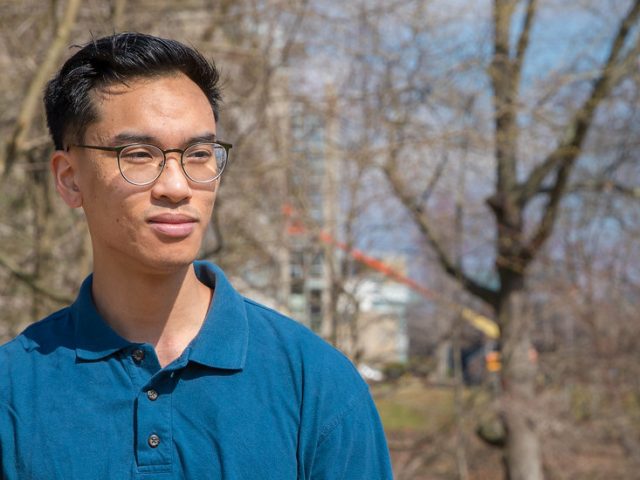
 How did you meet new people and stay involved on campus as a commuter?
How did you meet new people and stay involved on campus as a commuter? 
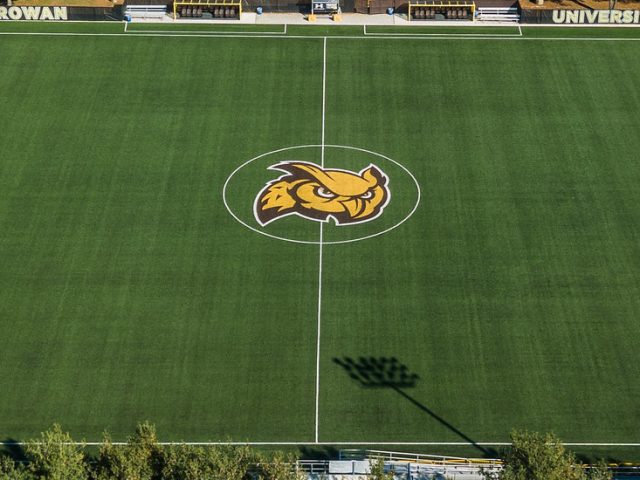





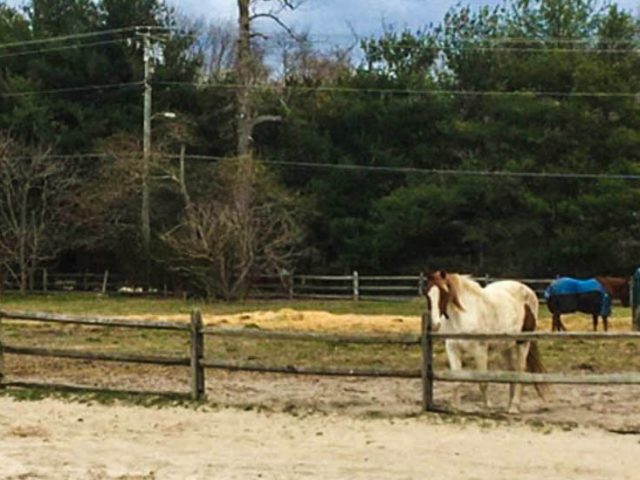
 Sicklerville, NJ. Her job is to muck out the horse stalls, ride the horses, take care of the horses if they are hurt and feed the horses. She still goes to work at the stables five times a week to check on and take care of the horses. She says that although the Coronavirus has made things a little bit different, she maintains her normal duties. “The virus mainly affected our airsoft field in the back. We would have airsoft every weekend, but now we don’t [Airsoft is a game where you shoot plastic bbs. The game is very similar to paintball. The farm has a field in the woods where players can play]. Instead of working 6 days a week, I have been working 5 days a week due to the virus. I continue to do my normal routine and pay attention to the 15 horses.”
Sicklerville, NJ. Her job is to muck out the horse stalls, ride the horses, take care of the horses if they are hurt and feed the horses. She still goes to work at the stables five times a week to check on and take care of the horses. She says that although the Coronavirus has made things a little bit different, she maintains her normal duties. “The virus mainly affected our airsoft field in the back. We would have airsoft every weekend, but now we don’t [Airsoft is a game where you shoot plastic bbs. The game is very similar to paintball. The farm has a field in the woods where players can play]. Instead of working 6 days a week, I have been working 5 days a week due to the virus. I continue to do my normal routine and pay attention to the 15 horses.” “It’s in my DNA. I come from a horse family, and my aunts are 4H royalty. My one aunt was the Appaloosa Queen and the other was the Barrel Racing Queen. My family used to have racehorses, and I work at the same farm my family used to keep our racehorses at. In my family, you have to know about horses because it is in our DNA. Since I was seven, I have been working on farms. To many, farm work is stressful because there is so much to do in such little time. Personally, I find farm work to be the best work. It is relaxing to be with the horses because they are majestic creatures and it brings me so much joy to be with them.” She finds working with the horses to be relaxing during this time of uncertainty.
“It’s in my DNA. I come from a horse family, and my aunts are 4H royalty. My one aunt was the Appaloosa Queen and the other was the Barrel Racing Queen. My family used to have racehorses, and I work at the same farm my family used to keep our racehorses at. In my family, you have to know about horses because it is in our DNA. Since I was seven, I have been working on farms. To many, farm work is stressful because there is so much to do in such little time. Personally, I find farm work to be the best work. It is relaxing to be with the horses because they are majestic creatures and it brings me so much joy to be with them.” She finds working with the horses to be relaxing during this time of uncertainty. 
 How did you get the job as a student?
How did you get the job as a student?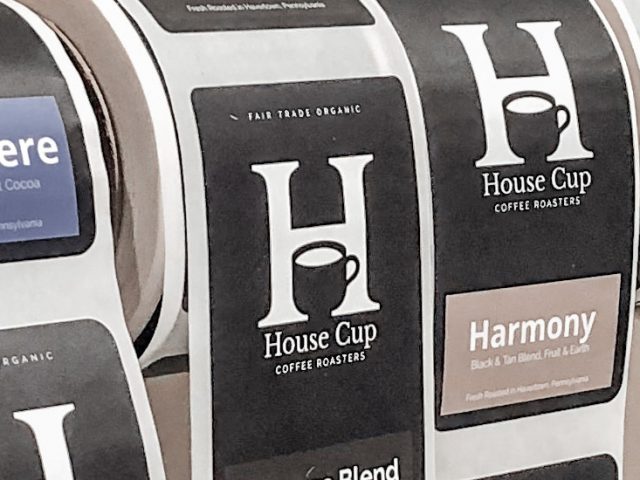


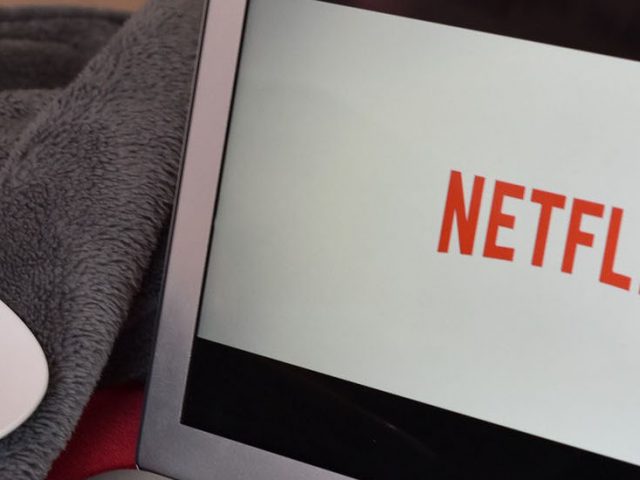





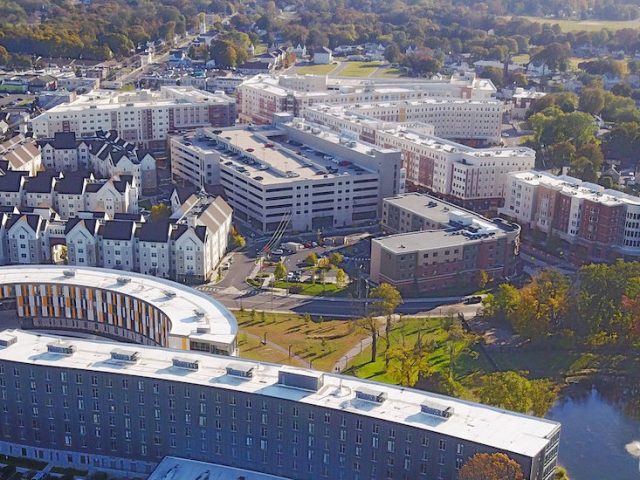


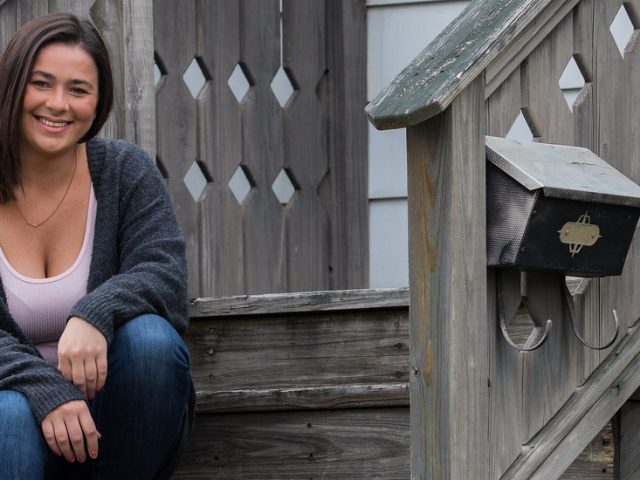



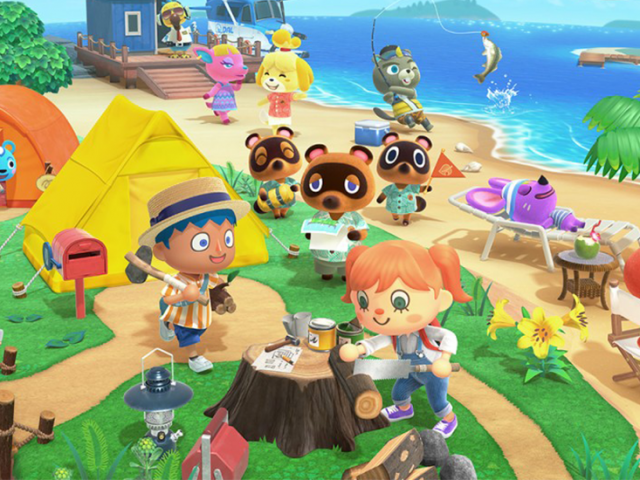




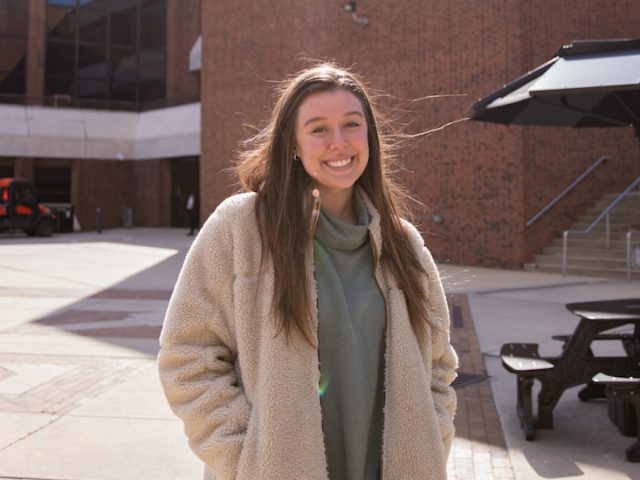
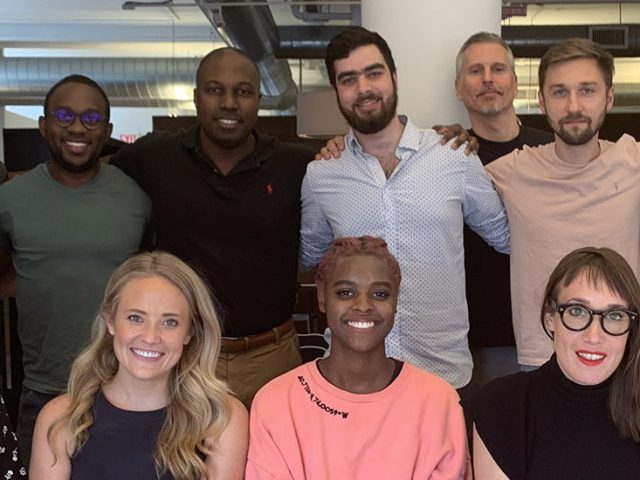
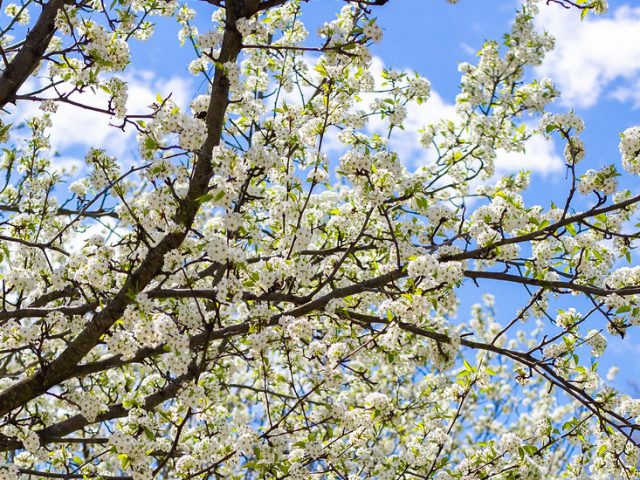


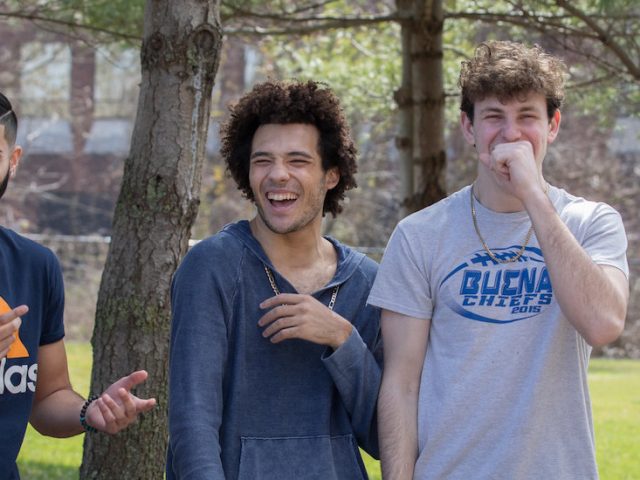

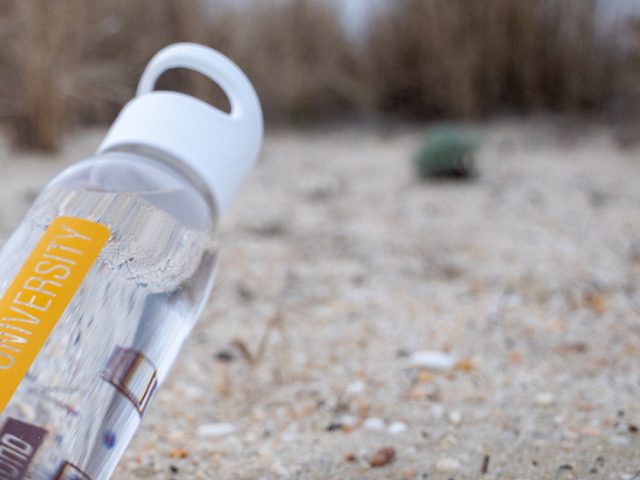




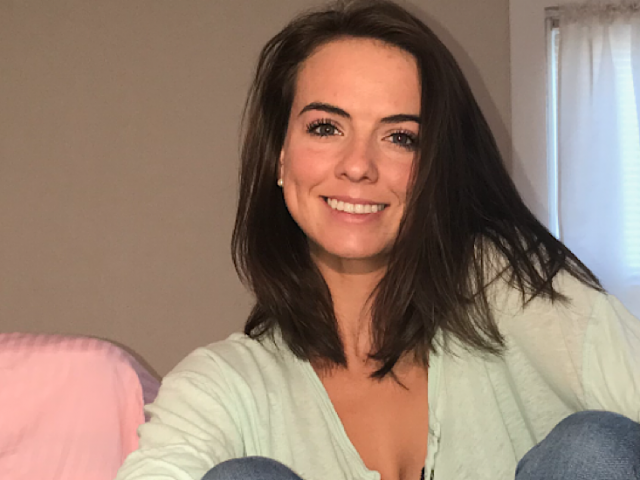


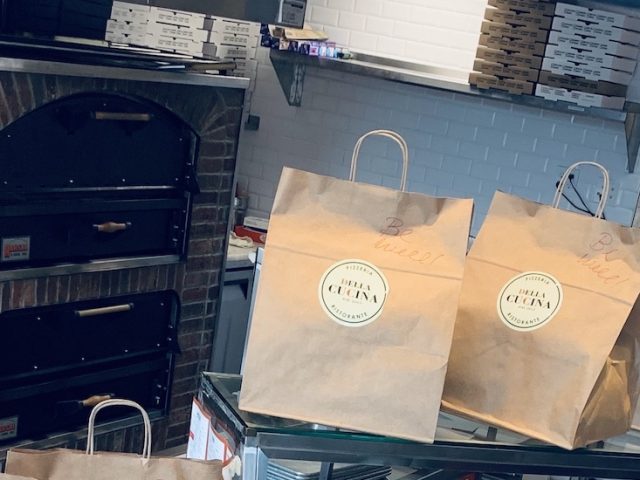
 I live in Bergen County which has become the most populated area in NJ with the COVID-19 virus in a very short amount of time. Personally, my town has about 40 cases and that keeps increasing every single day. It is crazy but life still needs to go on, so I started doing what I would be doing while I’m home normally: working.
I live in Bergen County which has become the most populated area in NJ with the COVID-19 virus in a very short amount of time. Personally, my town has about 40 cases and that keeps increasing every single day. It is crazy but life still needs to go on, so I started doing what I would be doing while I’m home normally: working.  Since the virus has started to spread more rapidly, a state curfew has been issued and lockdown put in place, altering our hours. Now, we need to be very cautious; I am always washing my hands when leaving to take a delivery or even after a customer comes in to pick up food.
Since the virus has started to spread more rapidly, a state curfew has been issued and lockdown put in place, altering our hours. Now, we need to be very cautious; I am always washing my hands when leaving to take a delivery or even after a customer comes in to pick up food.  My experience recently at Della Cucina has also opened my eyes to how serious and scary this is right now, from seeing people come in with gloves and masks on to doing no-contact deliveries and curbside pickup. It has changed everything as far as how we do things at the pizza place.
My experience recently at Della Cucina has also opened my eyes to how serious and scary this is right now, from seeing people come in with gloves and masks on to doing no-contact deliveries and curbside pickup. It has changed everything as far as how we do things at the pizza place.
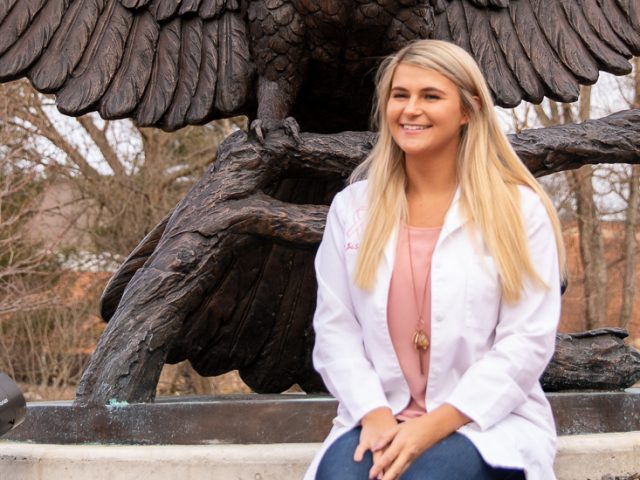
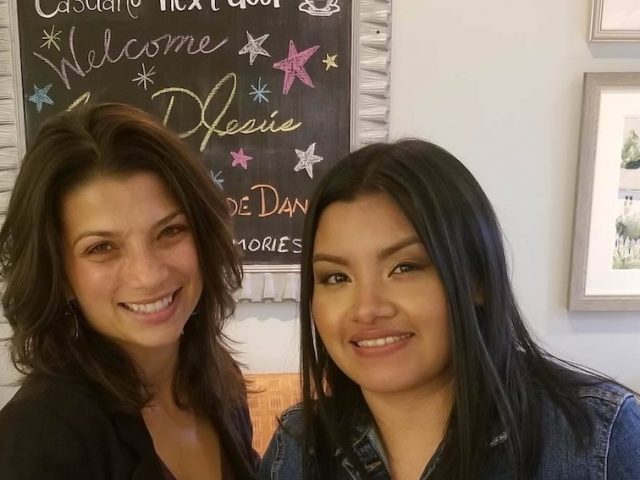
 My name is Maria Rosalba Trejo-Mendiola. I was born in Querétaro, Mexico. I moved to the United States at the age of 11. At an early age, I discovered my biggest passion in life was helping others. I knew that I wanted to pursue a career that allowed me to work with people. Of all the possible careers that I could have pursued, I fell in love with the one profession that makes all other professions possible: teaching. I attended Cumberland County College, now known as Rowan College of South Jersey, where I completed my associate degree in Liberal Arts. I then transferred to Rowan University where I completed my bachelor’s in Spanish. Then, I started working as a Career Placement Developer for Pathstone, a non-profit organization.
My name is Maria Rosalba Trejo-Mendiola. I was born in Querétaro, Mexico. I moved to the United States at the age of 11. At an early age, I discovered my biggest passion in life was helping others. I knew that I wanted to pursue a career that allowed me to work with people. Of all the possible careers that I could have pursued, I fell in love with the one profession that makes all other professions possible: teaching. I attended Cumberland County College, now known as Rowan College of South Jersey, where I completed my associate degree in Liberal Arts. I then transferred to Rowan University where I completed my bachelor’s in Spanish. Then, I started working as a Career Placement Developer for Pathstone, a non-profit organization.



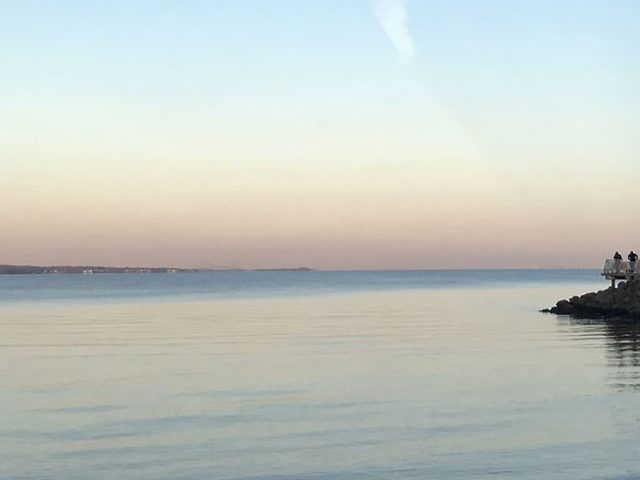


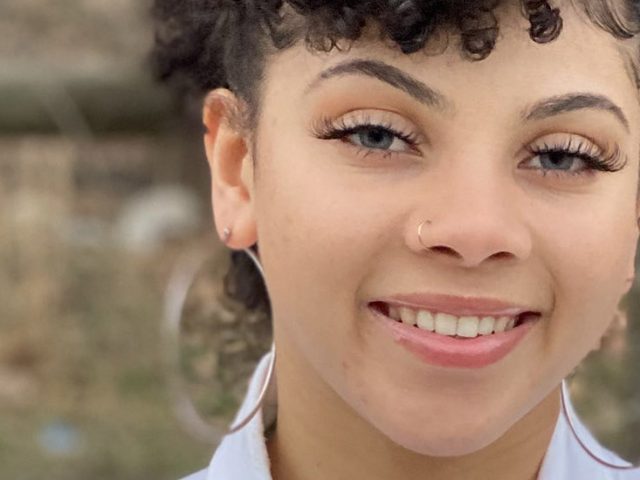
 This first-generation college student let us have the amazing chance to get some insight on herself, her lifestyle and her opinions on some topics. Her major is
This first-generation college student let us have the amazing chance to get some insight on herself, her lifestyle and her opinions on some topics. Her major is  Sometimes freshmen have a hard time transitioning into college, but not Anjeliah! She went through a six-week program in the summer before starting her first fall semester called the
Sometimes freshmen have a hard time transitioning into college, but not Anjeliah! She went through a six-week program in the summer before starting her first fall semester called the 


 Name:
Name:  What would you share with a future student interested in Construction Management?
What would you share with a future student interested in Construction Management?
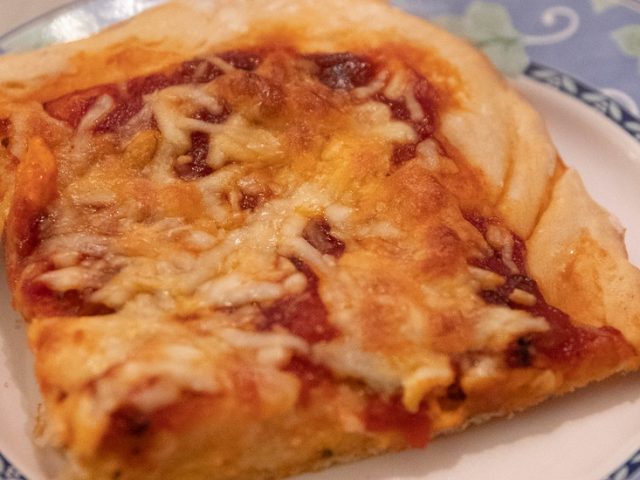

 2. In a separate bowl, dissolve 2 envelopes of yeast in 1 cup of warm water. Mix batter until firm, but not sticky.
2. In a separate bowl, dissolve 2 envelopes of yeast in 1 cup of warm water. Mix batter until firm, but not sticky. 





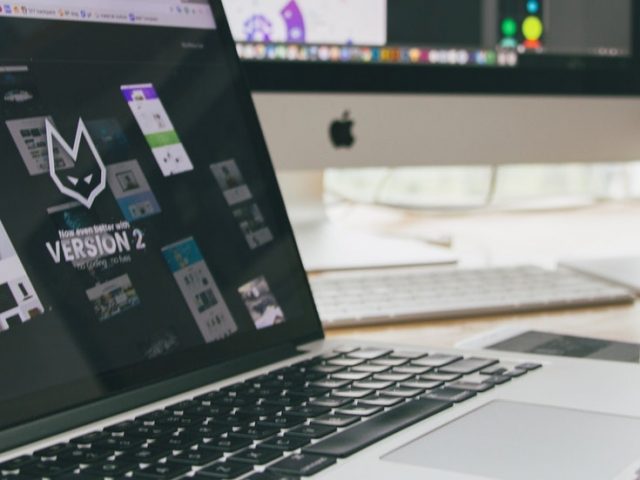
 I thought helping Julia would be a nice project for me to keep my skills sharp even while classes are online. After talking to Julia she said that she wanted a new logo for her page and graphics for when she is running a giveaway or when new clothes are going to be posted. Being a big fan of the beach and spending most of her time down the shore that was the theme that she was going for. We were able to sit down and pick out a color scheme and typography that she believed fit her the best. It was a win-win for both of us. She got some new content for her page and I had the opportunity to try new things that I have never tried before on some of my projects.
I thought helping Julia would be a nice project for me to keep my skills sharp even while classes are online. After talking to Julia she said that she wanted a new logo for her page and graphics for when she is running a giveaway or when new clothes are going to be posted. Being a big fan of the beach and spending most of her time down the shore that was the theme that she was going for. We were able to sit down and pick out a color scheme and typography that she believed fit her the best. It was a win-win for both of us. She got some new content for her page and I had the opportunity to try new things that I have never tried before on some of my projects. 
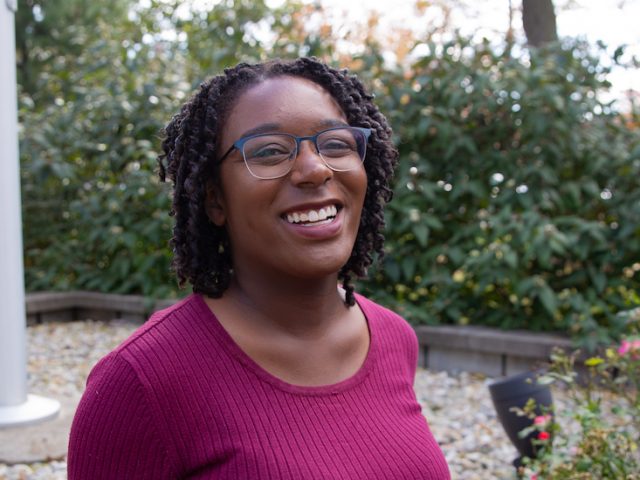
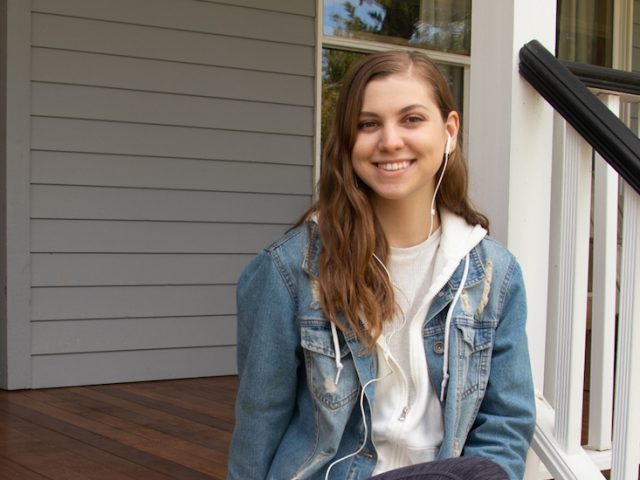
 Collegehood Advice provides listeners exactly with what you’d expect: college advice. With topics ranging from building your personal brand, exploring potential careers, and even more relevant, adjusting to school online, it’s a great tool to navigate a successful college life.
Collegehood Advice provides listeners exactly with what you’d expect: college advice. With topics ranging from building your personal brand, exploring potential careers, and even more relevant, adjusting to school online, it’s a great tool to navigate a successful college life.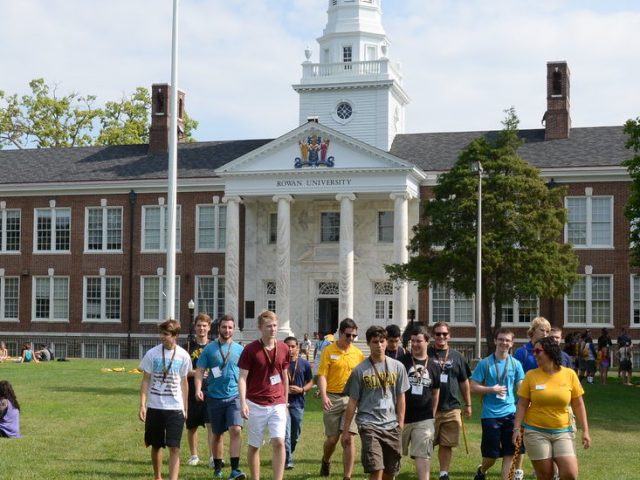


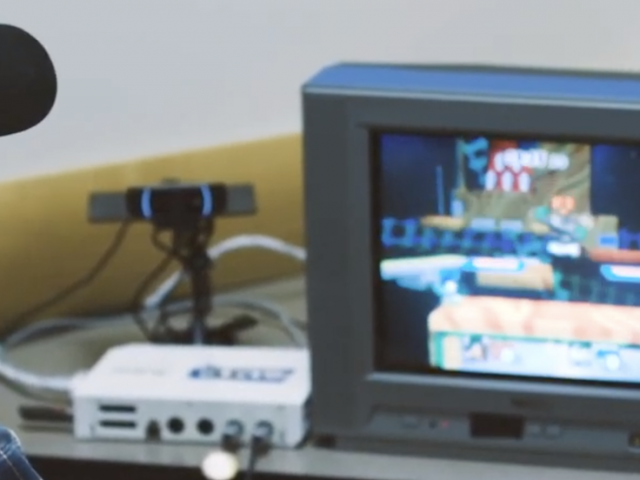

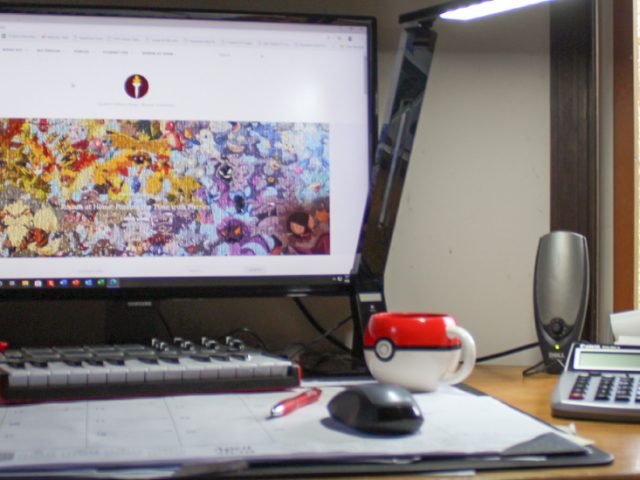

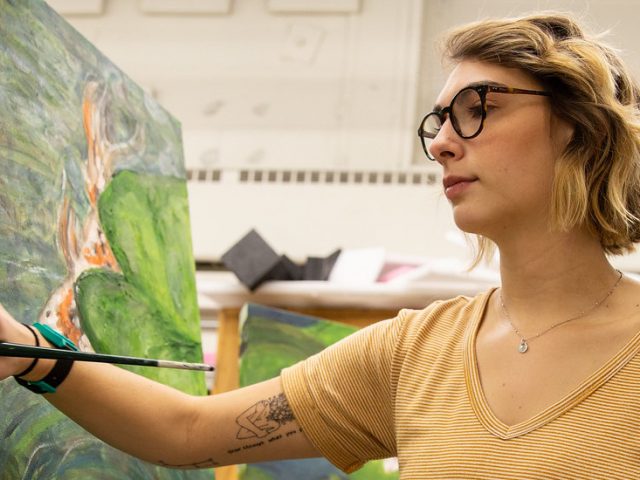
 Based on a suggestion from her high school art teacher and mentor, Jessica is working toward a career as an art therapist at a nearby hospital or cancer center. “[Art therapy is] really important for me to pursue. My sister had cancer, so it’s something that definitely hits home for me. And the possibility of working with little kids or anyone on the spectrum is something that’s so rewarding for everyone,” she says. “Art doesn’t have to be perfect; it doesn’t have to come out like you expected it to. Just the act of physically [making art] is so much more impactful than people might realize.”
Based on a suggestion from her high school art teacher and mentor, Jessica is working toward a career as an art therapist at a nearby hospital or cancer center. “[Art therapy is] really important for me to pursue. My sister had cancer, so it’s something that definitely hits home for me. And the possibility of working with little kids or anyone on the spectrum is something that’s so rewarding for everyone,” she says. “Art doesn’t have to be perfect; it doesn’t have to come out like you expected it to. Just the act of physically [making art] is so much more impactful than people might realize.”


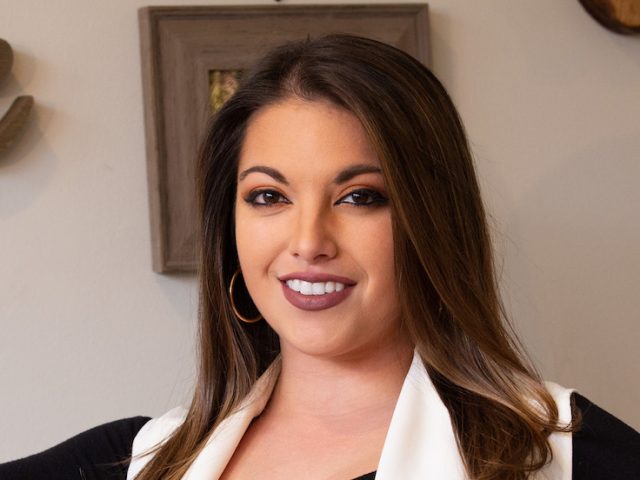

 Natalie feels passionate about helping the education, growth and development of children with disabilities and behavioral disorders.
Natalie feels passionate about helping the education, growth and development of children with disabilities and behavioral disorders. 
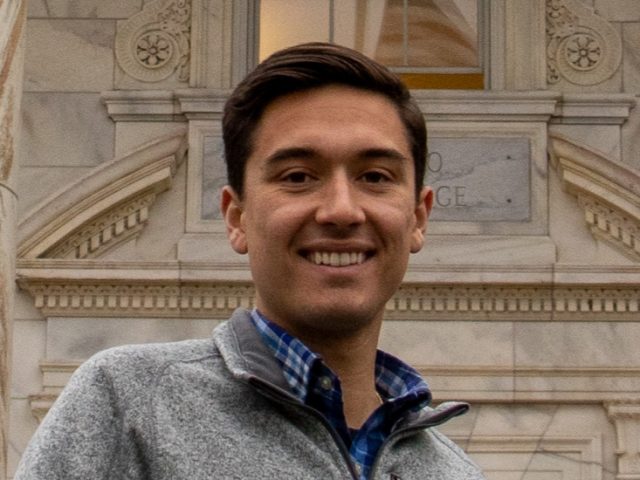
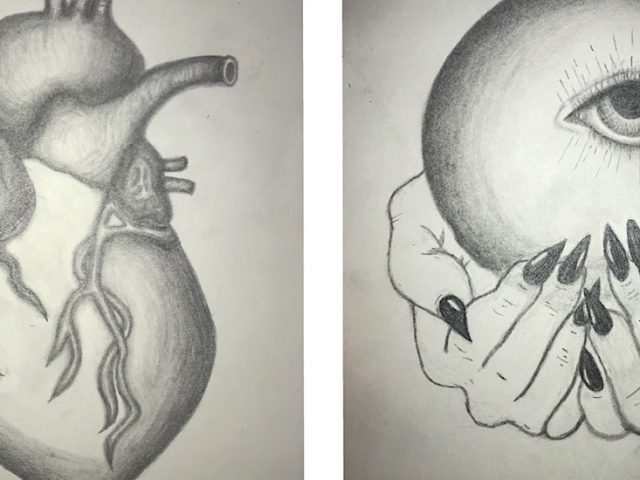


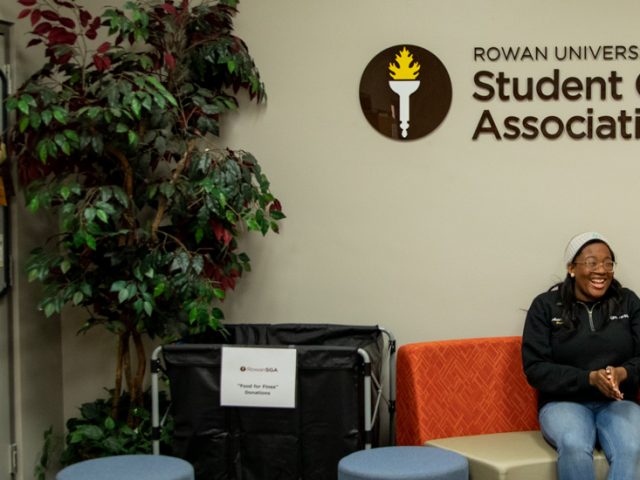
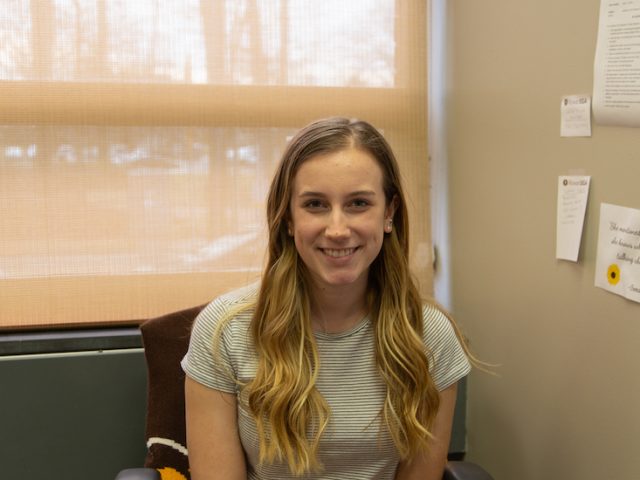
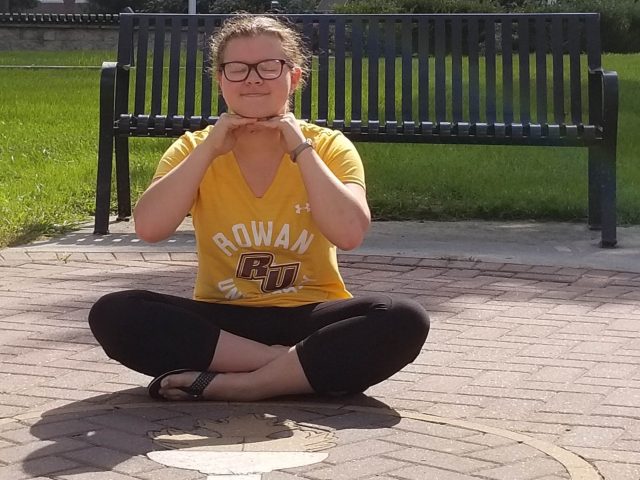


 As Amanda wraps up her last year at Rowan, she recommends the Degree in 3 program for those who are interested. “It definitely has shaped the way I view my workload,” she says. “My whole mentality has changed when it comes to work, and I’m able to balance a lot of tasks and manage my time better. I feel like I work harder now and when it comes to my workload, I don’t have the same mindset anymore.”
As Amanda wraps up her last year at Rowan, she recommends the Degree in 3 program for those who are interested. “It definitely has shaped the way I view my workload,” she says. “My whole mentality has changed when it comes to work, and I’m able to balance a lot of tasks and manage my time better. I feel like I work harder now and when it comes to my workload, I don’t have the same mindset anymore.”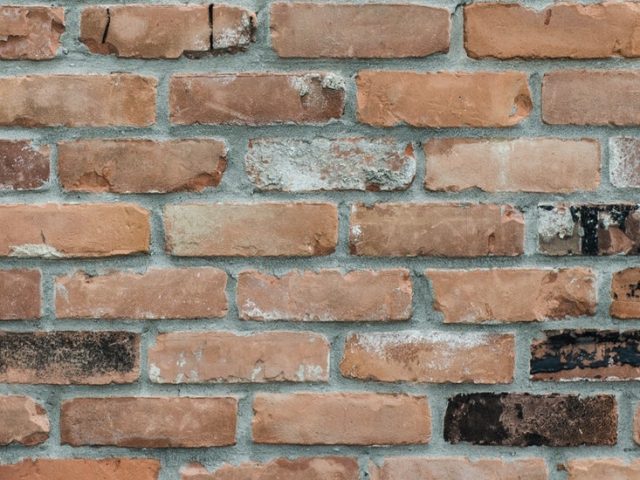
 There’s not one person whose life hasn’t been changed by the COVID-19 virus. Personally, my life got turned upside down. I have a very strict and fully packed weekly schedule that now is suddenly full of free time. My days would start at 6 a.m. and wouldn’t end till about 10 p.m.
There’s not one person whose life hasn’t been changed by the COVID-19 virus. Personally, my life got turned upside down. I have a very strict and fully packed weekly schedule that now is suddenly full of free time. My days would start at 6 a.m. and wouldn’t end till about 10 p.m. 
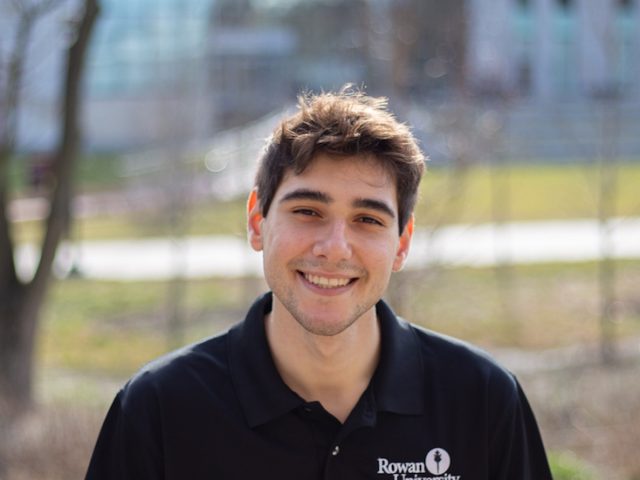
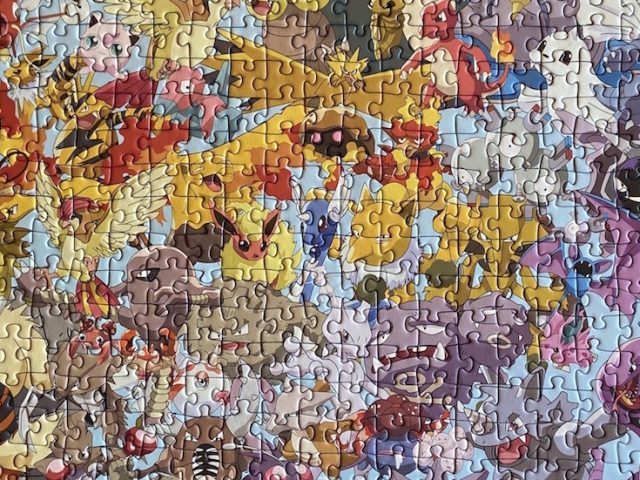
 This spring break, I was supposed to be heading to Atlanta with my team to compete, but unfortunately things didn’t go exactly as we planned! This left me with a lot of free time on my hands, which is something that I’m definitely not used to.
This spring break, I was supposed to be heading to Atlanta with my team to compete, but unfortunately things didn’t go exactly as we planned! This left me with a lot of free time on my hands, which is something that I’m definitely not used to. 

 So unfortunately, they hauled away a few pieces for themselves (and I’ve yet to find them). It’s incredibly unsatisfying to finish a puzzle and still be missing a piece or two, but I’ve accepted my fate as a cat owner!
So unfortunately, they hauled away a few pieces for themselves (and I’ve yet to find them). It’s incredibly unsatisfying to finish a puzzle and still be missing a piece or two, but I’ve accepted my fate as a cat owner!
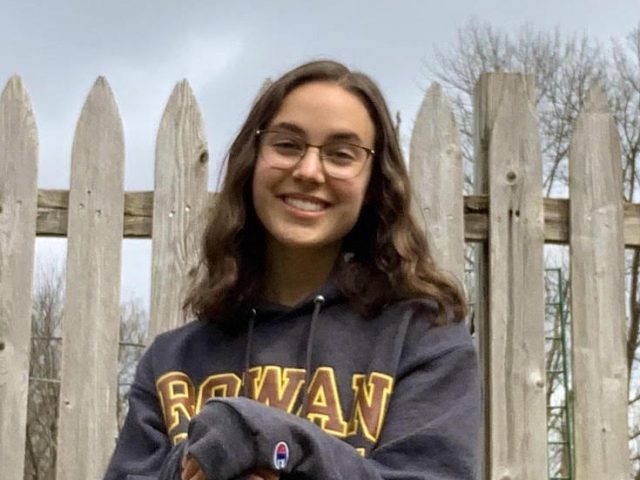


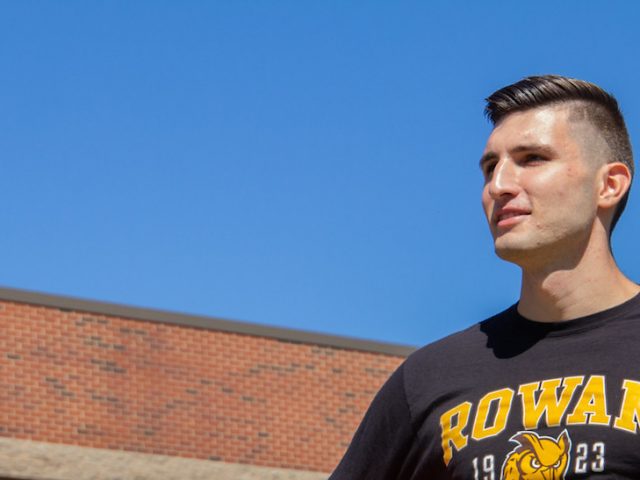

 Although my spring break (and the rest of the semester) is not what I have expected, I am trying my best to stay productive and not fall into a routine of slacking back. I have made a promise to myself that I will come out of this better, stronger (both mentally and physically), and more improved. Because I am normally jammed with three on-campus jobs and taking 18 credits in school during the academic year, my usual week is pretty hectic and my days can be overwhelming.
Although my spring break (and the rest of the semester) is not what I have expected, I am trying my best to stay productive and not fall into a routine of slacking back. I have made a promise to myself that I will come out of this better, stronger (both mentally and physically), and more improved. Because I am normally jammed with three on-campus jobs and taking 18 credits in school during the academic year, my usual week is pretty hectic and my days can be overwhelming.  As I will be graduating in about a month or so and will soon be out in the real world, I am using this time to prepare myself for a life after college; devoting my time to work on improving certain hard skills that employees look for, and searching for jobs that will help me get settled for a life in the U.S. upon the end of my college career.
As I will be graduating in about a month or so and will soon be out in the real world, I am using this time to prepare myself for a life after college; devoting my time to work on improving certain hard skills that employees look for, and searching for jobs that will help me get settled for a life in the U.S. upon the end of my college career.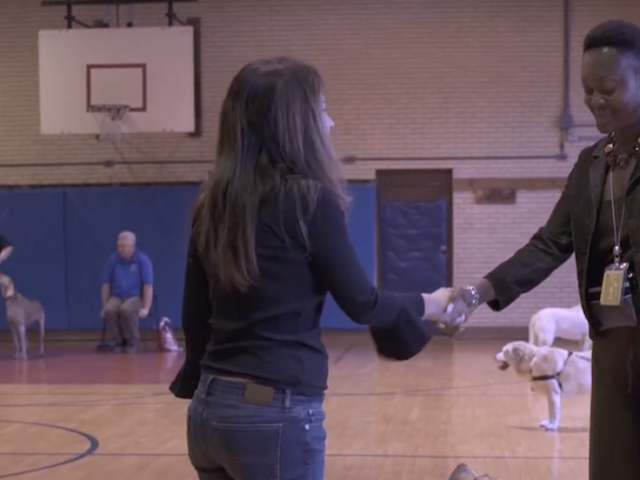
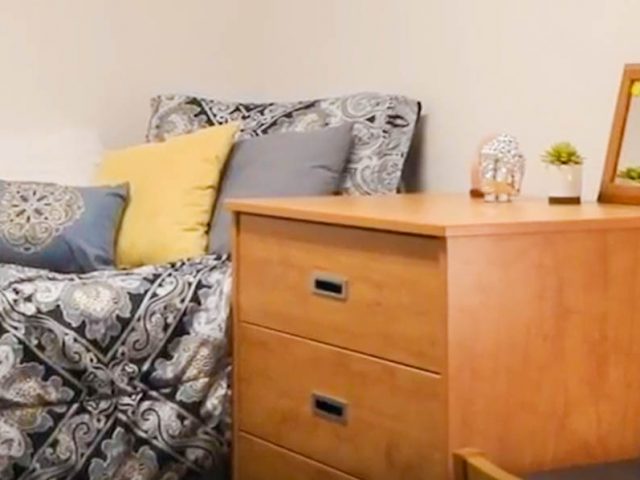
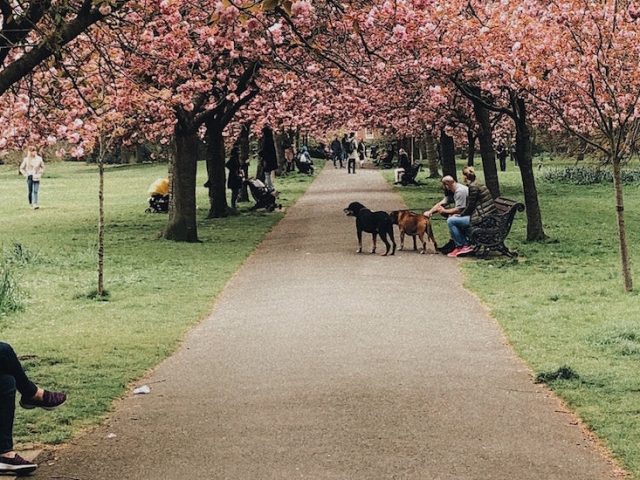
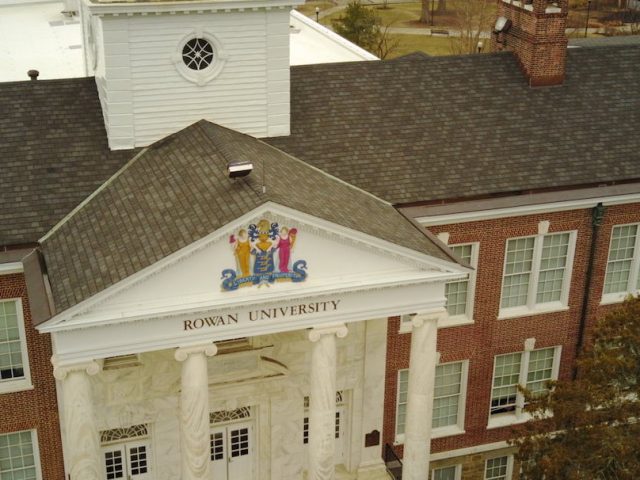

 someday I would be able to make them myself. A lot of the recipes that I make are from this book. Recently, I have added some of my own recipes into the book, in hopes that maybe someday this book will be passed on.
someday I would be able to make them myself. A lot of the recipes that I make are from this book. Recently, I have added some of my own recipes into the book, in hopes that maybe someday this book will be passed on.






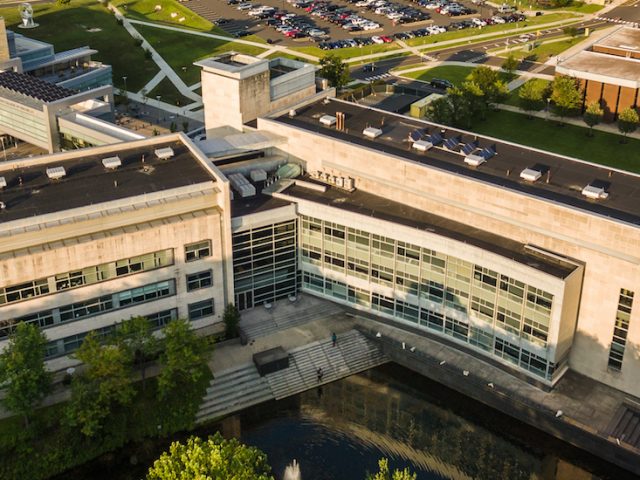
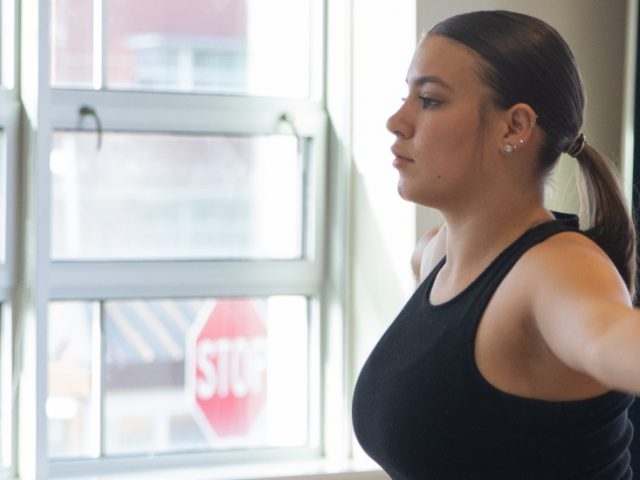



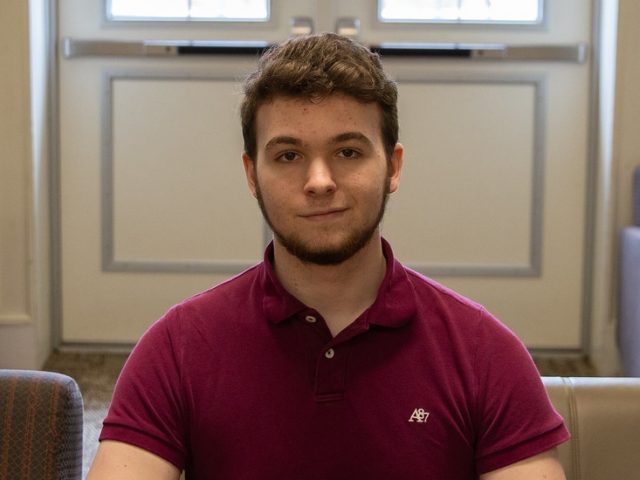
 Arts,
Arts,

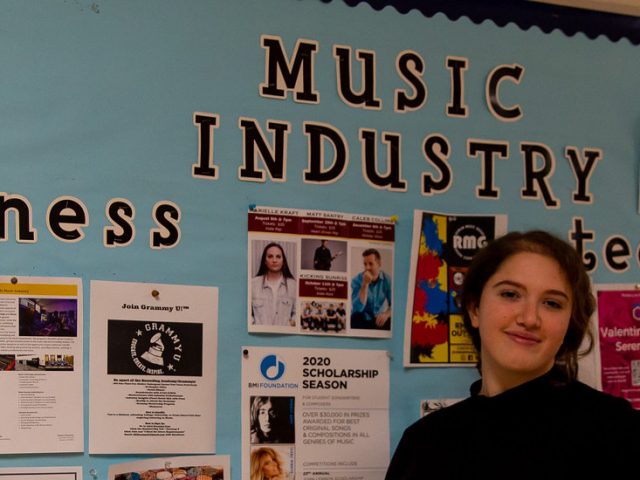
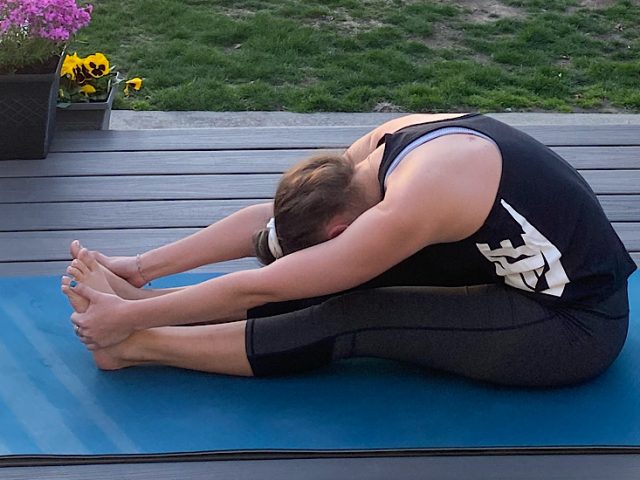
 I have been liking one by a social media fitness instructor named Maddie Lymburner. Her YouTube handle is MadFit and the video that I started out with is her 20-minute Yoga For Stress and Anxiety. This routine is 20 minutes of Stretch Yoga, which also focuses on breathing. It can be a great way to start or end the day because it is quick and relaxing.
I have been liking one by a social media fitness instructor named Maddie Lymburner. Her YouTube handle is MadFit and the video that I started out with is her 20-minute Yoga For Stress and Anxiety. This routine is 20 minutes of Stretch Yoga, which also focuses on breathing. It can be a great way to start or end the day because it is quick and relaxing. 
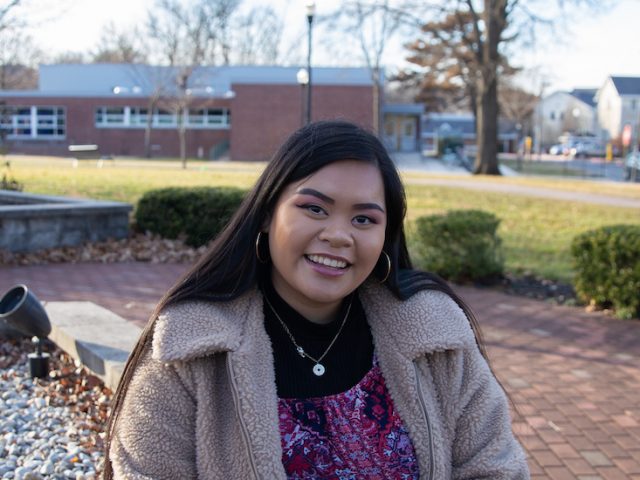
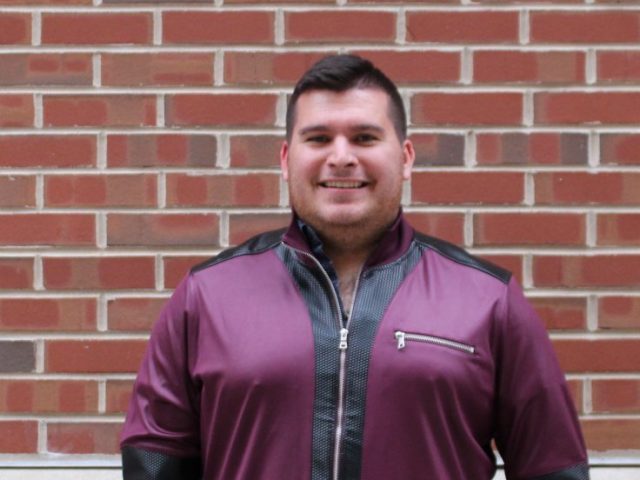
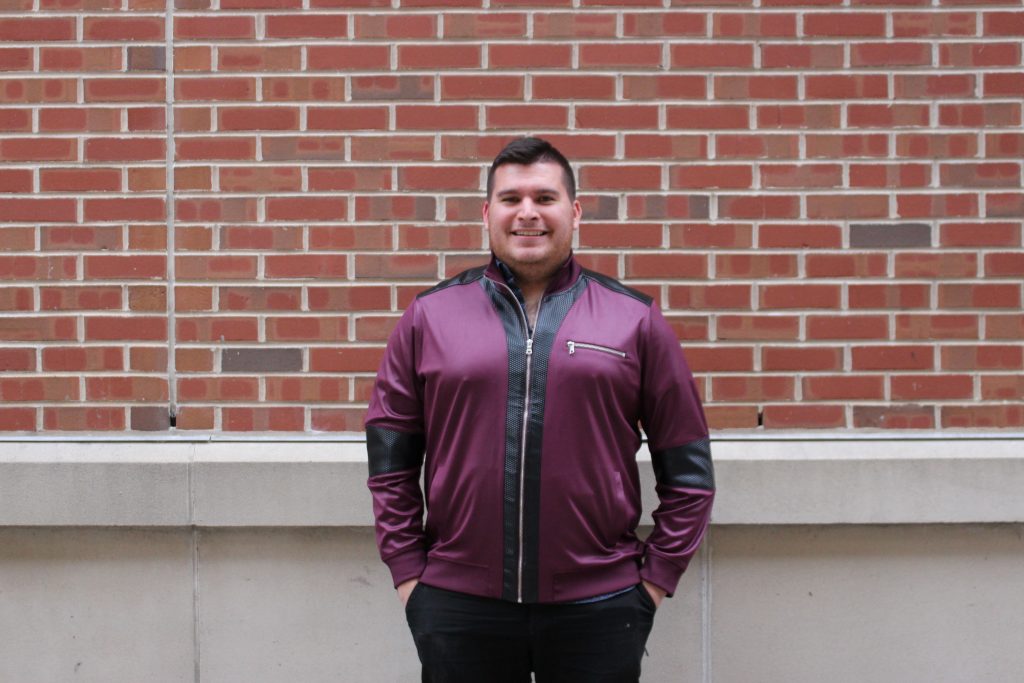
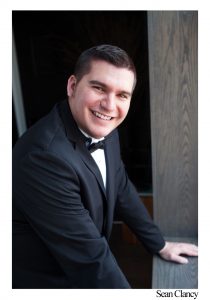 education?
education?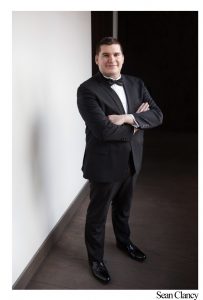
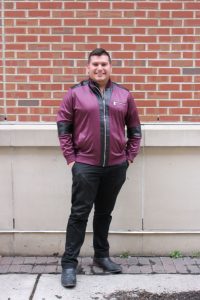 but they don’t tell you get the job your supposed to be in. My first job I got it at the wrong place. I left it mid-year; I didn’t like it. It was my first interview after college, and I got the job. I was like ‘dream job amazing’ but I had no support and I was doing too much, I was 22 teaching high school. I took the job, but that job wasn’t right for me, but of course I don’t regret it because I learned a lot and learned about myself. Learned how to get right up when you hit rock bottom. A year later I started working a part-time job in Belmawr, my hometown, trying to revive their chorus program and through that process I learned that I am a good teacher and that I could make an impact in kids and that I was just in the wrong place. Since then I’ve been a full-time teacher.”
but they don’t tell you get the job your supposed to be in. My first job I got it at the wrong place. I left it mid-year; I didn’t like it. It was my first interview after college, and I got the job. I was like ‘dream job amazing’ but I had no support and I was doing too much, I was 22 teaching high school. I took the job, but that job wasn’t right for me, but of course I don’t regret it because I learned a lot and learned about myself. Learned how to get right up when you hit rock bottom. A year later I started working a part-time job in Belmawr, my hometown, trying to revive their chorus program and through that process I learned that I am a good teacher and that I could make an impact in kids and that I was just in the wrong place. Since then I’ve been a full-time teacher.”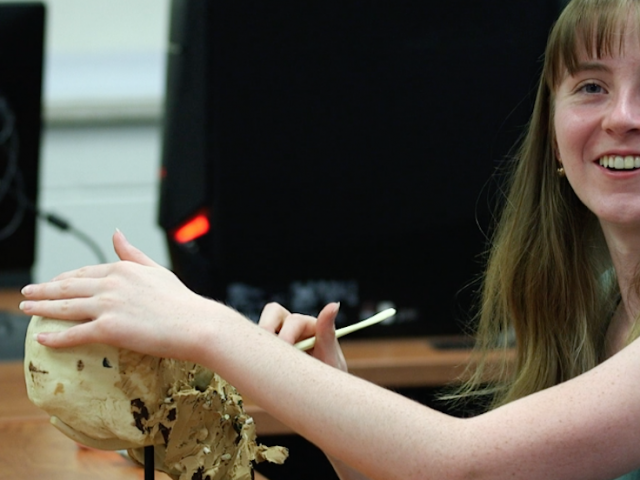
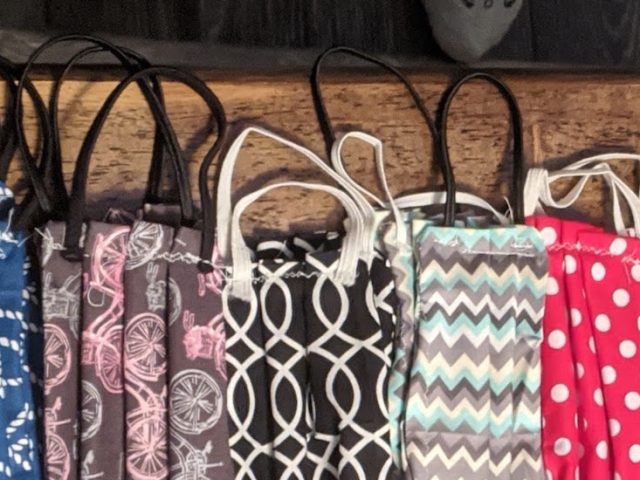




 I added the sunflowers because they’re a happy flower and a reminder to always look toward the sun. I also decided to paint my light switch cover because the old one had soccer balls on it, a sport I haven’t played since middle school.
I added the sunflowers because they’re a happy flower and a reminder to always look toward the sun. I also decided to paint my light switch cover because the old one had soccer balls on it, a sport I haven’t played since middle school.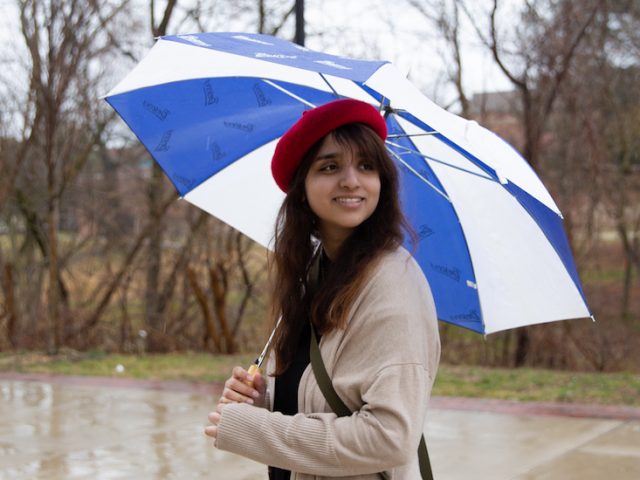
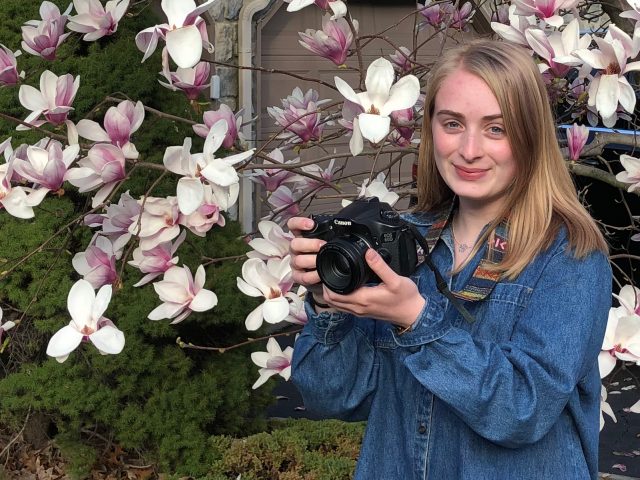
 Most of us don’t have the money as college students to invest in a fancy camera, but we can make the most of our phone cameras with a few lighting tricks. Natural light is going to be our best friend, so try to shoot during the day time when you can use minimal overhead lighting. Fluorescent lights usually don’t work well with photos, and can distort the exposure (brightness) or colors in your photos. Avoid shooting in direct sunlight, especially if there is a person in the shot, so they don’t have to squint. Typically, overcast or cloudier days are best, as they prevent overexposure of your image and distracting sun flares or glares. Wherever your light is coming from, it should illuminate the subject in your photo so that they stick out from the background. Have your subject face the light source, as opposed to having their back to the light, so they are clearly visible.
Most of us don’t have the money as college students to invest in a fancy camera, but we can make the most of our phone cameras with a few lighting tricks. Natural light is going to be our best friend, so try to shoot during the day time when you can use minimal overhead lighting. Fluorescent lights usually don’t work well with photos, and can distort the exposure (brightness) or colors in your photos. Avoid shooting in direct sunlight, especially if there is a person in the shot, so they don’t have to squint. Typically, overcast or cloudier days are best, as they prevent overexposure of your image and distracting sun flares or glares. Wherever your light is coming from, it should illuminate the subject in your photo so that they stick out from the background. Have your subject face the light source, as opposed to having their back to the light, so they are clearly visible.


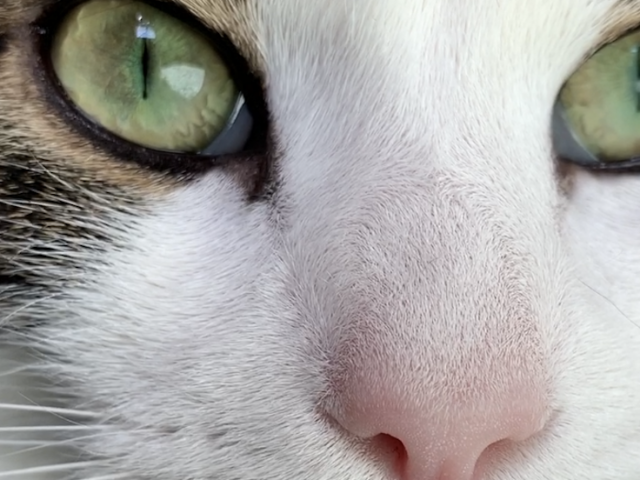
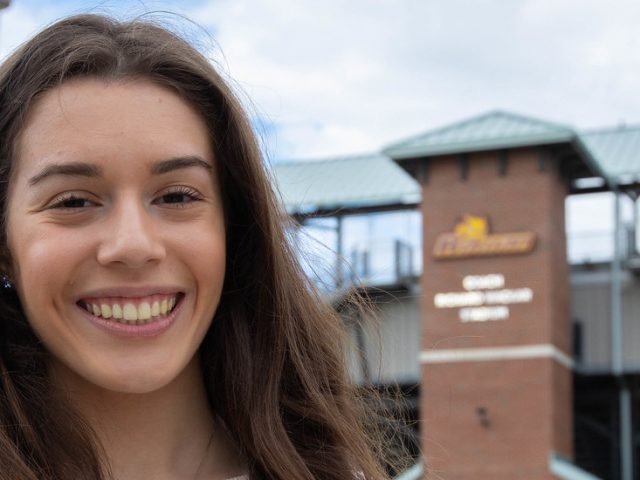


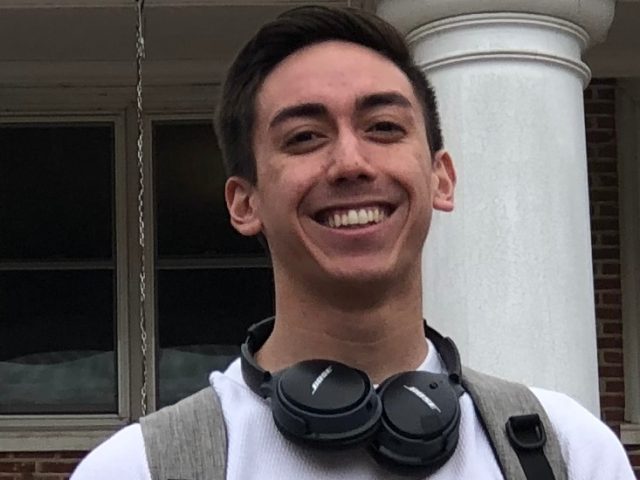

 They were motivational. Listening to music and getting in the zone helps. I learned to not be afraid to ask for help from some of my computer science major friends, then that translated into feeling comfortable asking for help from professors.
They were motivational. Listening to music and getting in the zone helps. I learned to not be afraid to ask for help from some of my computer science major friends, then that translated into feeling comfortable asking for help from professors.  universities. When I outsource to other universities and in the outside world, I am representing Rowan. Being an RA has made me more confident and comfortable, as well as increases my interpersonal skills. These qualities are transferrable to my DJing. Both jobs have also taught me how to be adaptable and make people feel welcome. Also, DJing has helped me make many connections, and being an RA people reach out to me to DJ their events.
universities. When I outsource to other universities and in the outside world, I am representing Rowan. Being an RA has made me more confident and comfortable, as well as increases my interpersonal skills. These qualities are transferrable to my DJing. Both jobs have also taught me how to be adaptable and make people feel welcome. Also, DJing has helped me make many connections, and being an RA people reach out to me to DJ their events. 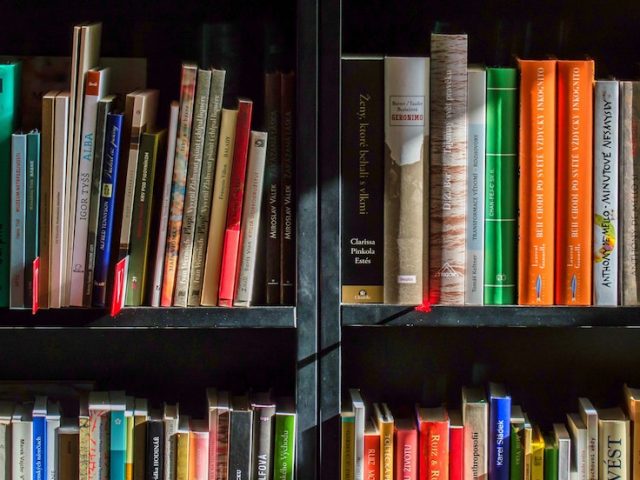
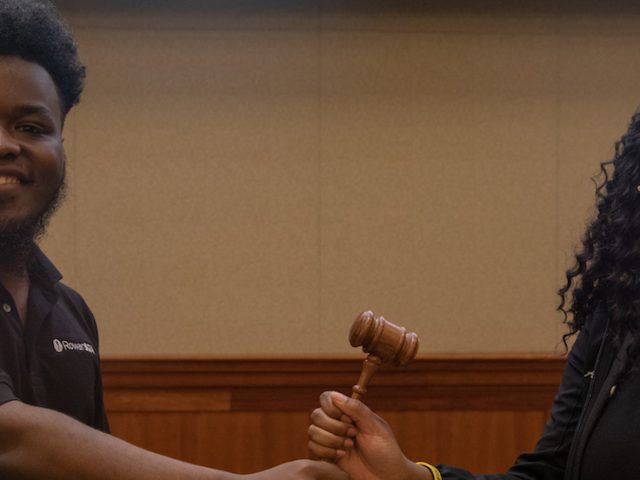
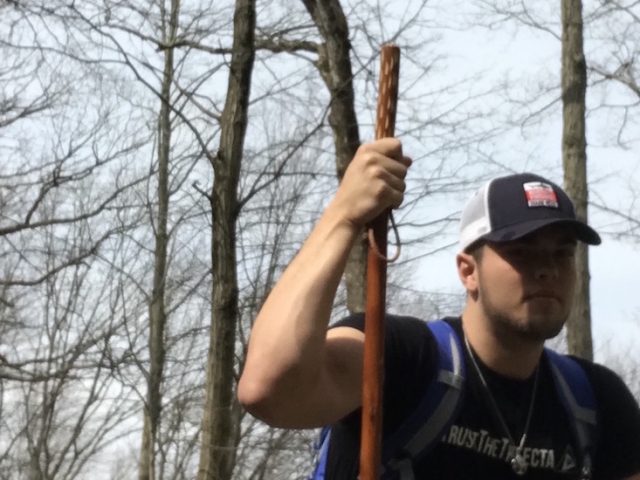

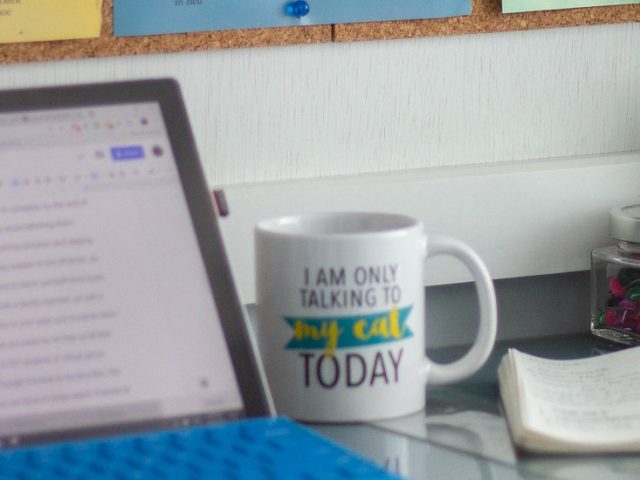




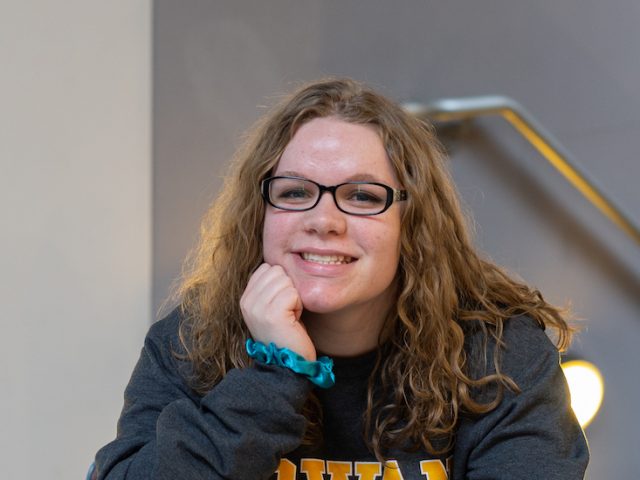



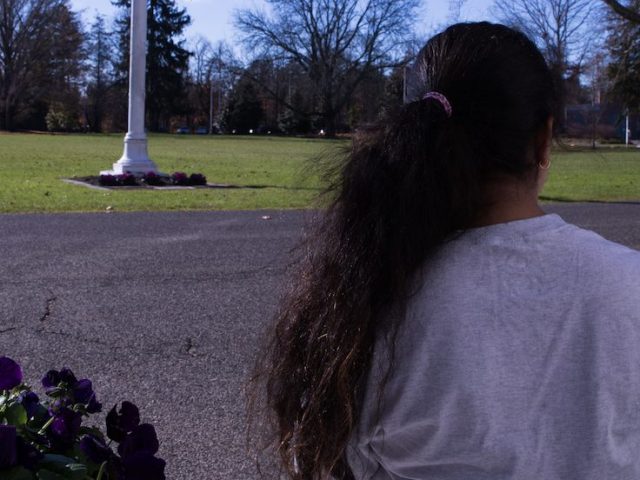
 I’ve lived with this on and off since puberty, which is the typical age when anxiety or depression starts to kick in. Today I’ll share with you a few tricks that work for me. Try them. If they don’t work for you, or if your anxiety gets worse, please call your family doctor for an appointment. If you are in immediate danger, call the National Suicide Prevention Lifeline at (800) 273-8255.
I’ve lived with this on and off since puberty, which is the typical age when anxiety or depression starts to kick in. Today I’ll share with you a few tricks that work for me. Try them. If they don’t work for you, or if your anxiety gets worse, please call your family doctor for an appointment. If you are in immediate danger, call the National Suicide Prevention Lifeline at (800) 273-8255. 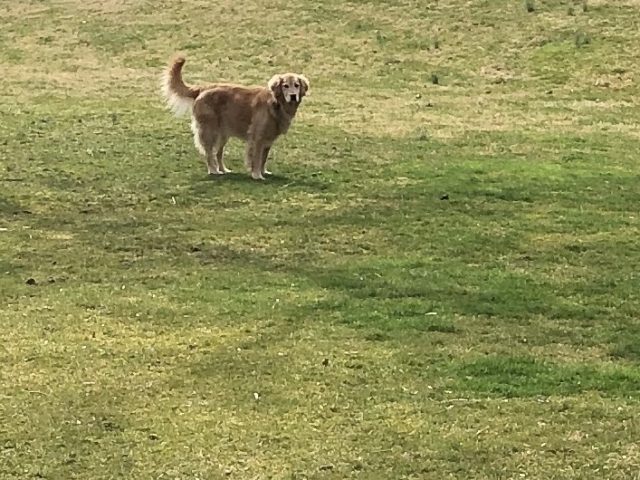
 Hello Rowan Profs! Normally I’d be in Whitney Apartments, hanging out with friends and going through my engineering homework. However, being stuck at home, I have decided to take some extra time to bond with my beloved golden retriever, Riley!
Hello Rowan Profs! Normally I’d be in Whitney Apartments, hanging out with friends and going through my engineering homework. However, being stuck at home, I have decided to take some extra time to bond with my beloved golden retriever, Riley!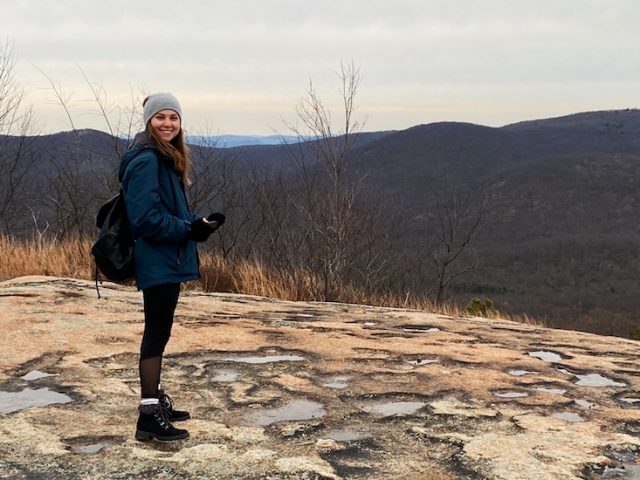










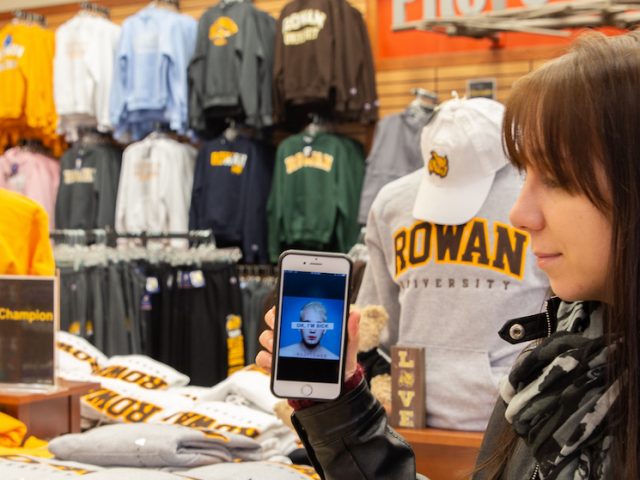


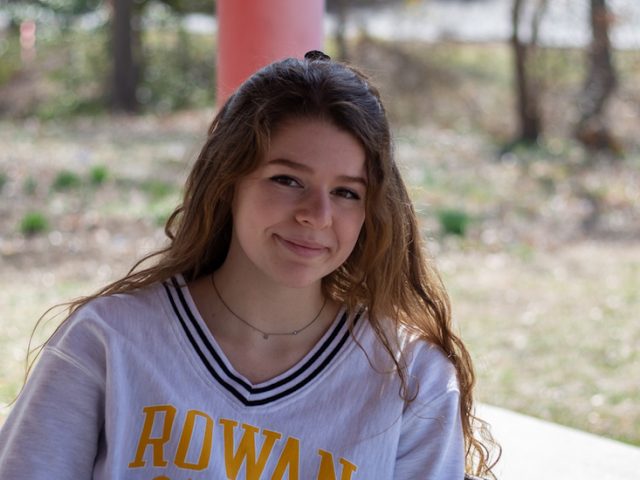
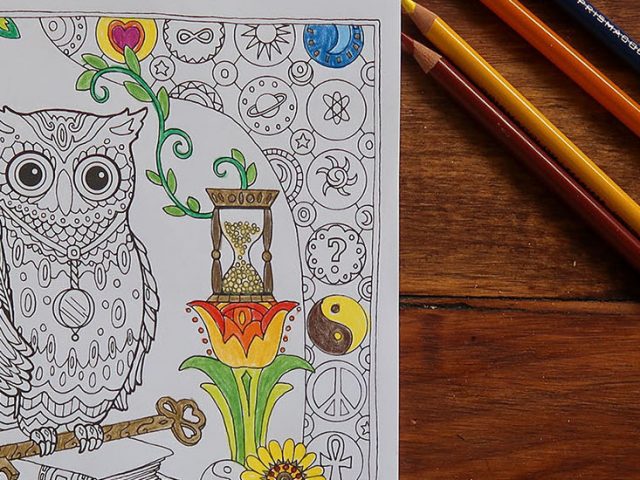

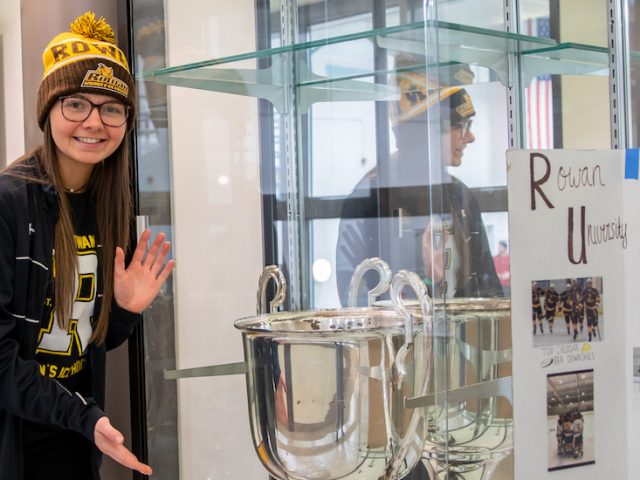


 What would you share with a future student interested in joining Women’s Ice Hockey? Joining is definitely worth it. The team is like a family. Everyone is collaborative with putting in effort, the coaches are great and helpful, and every teammate has your back on and off the ice.
What would you share with a future student interested in joining Women’s Ice Hockey? Joining is definitely worth it. The team is like a family. Everyone is collaborative with putting in effort, the coaches are great and helpful, and every teammate has your back on and off the ice.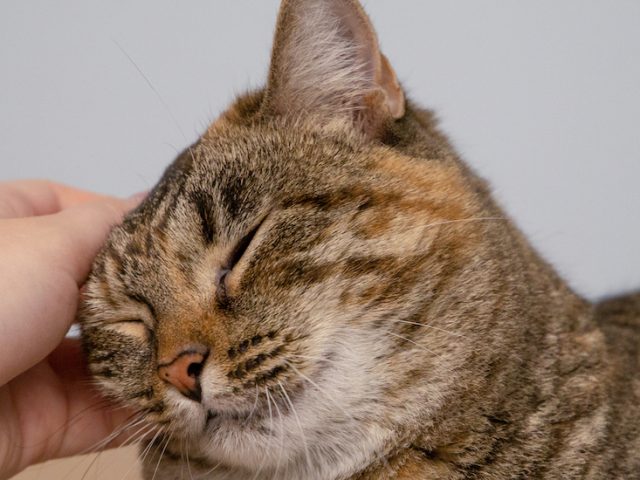
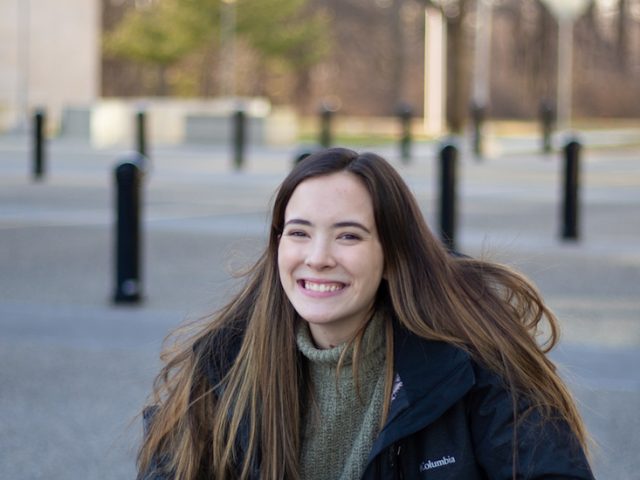
 Meet Samantha B, sophomore
Meet Samantha B, sophomore  Being a part of something like Food Recovery Network at Rowan, a university that encourages sustainability and practicing sustainable habits, is extremely rewarding. Being able to give back to those that have lent a hand in building beautiful Glassboro — the town that us Profs get to call home — is an opportunity I’m beyond grateful to have.
Being a part of something like Food Recovery Network at Rowan, a university that encourages sustainability and practicing sustainable habits, is extremely rewarding. Being able to give back to those that have lent a hand in building beautiful Glassboro — the town that us Profs get to call home — is an opportunity I’m beyond grateful to have.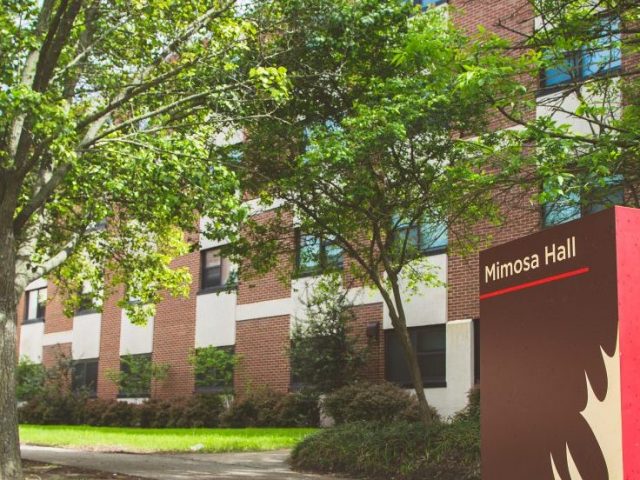

 1. The Community in Mimosa
1. The Community in Mimosa 